How to Learn French for Travel Before Your Trip to Paris

The #1 piece of advice for anyone traveling to Paris, or anywhere else in France, is to learn some basic French before you go. When you learn French for travel you expand your own opportunities to become immersed in French culture. More importantly, though, you show respect for French people and their language.
Today, it’s easier than ever to learn French for travel. Thanks to user-friendly technology, you can practice listening, speaking, reading and writing in French from the comfort of your home. You can target your practice to the French you’ll actually use when you’re traveling, so that you can apply your new knowledge from the moment your plane lands at l’aéroport . Below, I talk about five ways that I studied French for travelers in preparation for my recent trip to Paris.

1. Duolingo – The Easiest Way to Learn French for Travel
I’ve had an on-again, off-again relationship with Duolingo for many years. However, to prepare for my most recent trip to Paris, I decided to re-activate the app and commit to using it at least once a day. To make this easier on myself I purchased Duolingo Plus, which offers an ad-free experience and unlimited daily mistakes (not that I make a lot of mistakes!) so that I can make the most of the time I spend reviewing French for travel. You absolutely don’t have to pay for Duolingo, but I think it’s worth upgrading to Plus for a month or two before your trip to Paris.

Your main Duolingo homepage is shown on the left – it’s a stream of lessons with different themes, and through these lessons you learn both grammar and vocabulary in an intuitive way. The lessons build on one another, so the things you learn in the earlier lesson will re-appear in later lessons, in more challenging contexts. As you complete lessons you earn “XPs”, or experience points, and there’s a leaderboard showing your progress compared to other students. As you can see, I’m a pretty dedicated French language student!

There are several different types of activities that you will complete within any one lesson. For example, this morning I had to listen to someone speaking and then re-write their conversation, translate a sentence to English and then finish a conversation. There are also stories that you can read along with, and occasional special events (yesterday I got an invitation to a vocabulary matching tournament where I had ninety seconds to match ninety pairs of words!).
As a bonus, lots of the activities are about traveling to Paris and sharing French culture, so in addition to learning the language you get in a little bonus trip-planning.
Looking for more Europe travel tips?
Follow Fearless Female Travels on Facebook for actually-useful tips on traveling in Europe, affordable travel advice, solo female travel inspiration, and more!
2. Watch French Videos on YouTube
I have a confession: I am the weird person at the gym who not only watches language-learning videos on the treadmill, but they also move their mouth along with the audio track so I look like I’m either talking to myself or singing along with a (very slow) song.
To improve my French before I traveled to France, I put French audio lessons on my TV in the background as I went about my daily chores, like cooking, cleaning and writing blog posts! My favorite audio lessons were from FrenchPod101 – they have more than one million subscribers on their YouTube channel and their videos are great for French language learning.

There are tons of videos to choose from, including beginner, intermediate and advanced lessons. They even have “learn French while you sleep” videos (I’m not sure if they work or not – let me know if you try them!). There are other YouTube channels that teach French, but FrenchPod101 was the one kept going back to when I prepared for my trip to Paris.
3. Use a French Language Learning Computer Program

The gold standard of computer programs for learning French is still The Rosetta Stone . I’ve used this program several times in the past, but mainly for studying Italian and Spanish. The great thing is that the updated package includes access to all 24 languages in their library, and lifetime support as the program adapts and changes. It’s a great value if you anticipate going to France in the near future, and may wish to study another language a few years down the line.
That being said, you may not have to pay for the Rosetta Stone. Many public libraries include access to the online program in their membership. You should ask your public library if they offer Rosetta Stone access to cardholders (and if they don’t, would they consider introducing it?).

My public library also has a free language learning program called Pronunciator (screenshots shown above). It has short daily lessons, as well as structured courses for various language levels. As you could expect from its name, the main focus here is on listening and speaking, so there’s lots of audio and video content. You test your knowledge through activities like fill-in-the-blank, reading comprehension questions, matching exercises and speaking practice.
4. Learn French for Travel Through Books

The days of traveling with a phrase book are over (we have Google Translate now!). However, a great French language learning book can really help you prepare for your trip to France.
One of the most popular books for new French speakers is called Easy French, Step-by-Step , written by Myrna Bell Rochester. I went to check out this book at my local bookstore and I can see why it’s so popular – it is a clear, concise overview of basic French grammar, taught using the kind of high-frequency vocabulary that you’d be likely to use during your travels. Spending twenty minutes a day working through this book would be great way to prepare for your trip to Paris.
Personally, I was able to recall enough high school French that I was ready for a more intermediate French book. So, I opted for Barron’s French Grammar . It has easy-to-understand explanations of common grammatical structures, anticipates common mistakes and has lots of practice questions.
5. Find a French Language Exchange Group or Partner

There’s a huge difference between studying French for travel at home, using books, videos and technology, and actually getting out there and putting your French language skills to use. While you could sign up for a formal French class, that’s not necessarily what I would do before a trip to France. Instead, I recommend looking for a French language exchange group or a language exchange partner. For full disclosure I didn’t use this strategy for my recent trip to France, but I did use it before my first trip to Mexico.
There are lots of places to find language exchange groups. You can look on sites like Meetup, Couchsurfing or Facebook (mostly in the Groups section). These informal communities meet weekly or monthly to engage in friendly conversation in the target language. Often, events are held at restaurants and bars, but sometimes they rent space in a community center, library or school. Language exchanges aren’t intended to be lessons, so don’t expect the people there to teach you! Instead, expect to meet other people interested in French, ranging from beginners to native speakers, who just want to chat.
If you’re not interested in meeting as a large group, you might be able to find a language exchange partner. The most common place to find a language exchange partner is on campus at your nearest university or college. Look on the bulletin boards around the international student center or the French department. There, you may see signs from visiting students from La Francophonie (the word to describe all the French-speaking countries) who would like to meet English speakers and exchange languages. Often, this looks like chatting for half the time in English and then switching to French (or vice versa).
Do you study the local language before you travel? Share your favorite language-learning tip in the comments below!
If you’re traveling to Paris, make sure to check out my roundup of the best Paris guidebooks . I read twenty-five Paris travel guides and narrowed my recommendations down to the very best.
What won’t these guidebooks tell you? My 18 French etiquette tips that will help you fit right in to any French situation.
Before you travel home from France, stop by a French pharmacy and pick up some of my favorite French pharmacy products , from perfumes and body-wash to anti-aging skincare.
The Best Area to Stay in Barcelona for Solo Female Travel
10 great things to do in catania, sicily, you may also like, what is the best time to visit the..., barcelona to paris train – tips for traveling..., the true pros and cons of all-inclusive resorts, 2024 hostel packing list – don’t check into..., how to do a cassis boat tour to..., the 17 best things to do in marseille,..., all about the sault lavender festival & lavender..., the 13 best things to do in antibes,..., the best paris guide book for every kind..., 20 solo female travel quotes to inspire your....
Vocabulary Lesson: French for Travelers
Learn Common French Words You'll Use While Traveling
- Pronunciation & Conversation
- Resources For Teachers
Travelers to France and other countries where French is spoken will want to learn a few basic words in the local language. It will help you on your trip ( le voyage ) as you make your way around and speak to people.
In this French vocabulary lesson, you will learn how to ask for directions, navigate your transportation options and rent a car, avoid danger, and enjoy local shopping and dining during your stay. It is an introductory lesson and you will find links to other lessons so you can further your studies.
As a traveler ( voyageur ) , you may also want to brush up on French phrases required for politeness as well as a few that are essential and let people know that you are new to the language.
Have a good trip! ( Bon voyage ! )
Note: Many of the words below are linked to .wav files. Simply click on the link to listen to the pronunciation.
Getting Around and Asking for Directions
Whether you are roaming the streets of Paris or decide to take a drive in the French countryside, these simple phrases are useful for those times when you need to ask for help.
Travel Essentials
Every traveler needs know these basic words for their journey.
- Tourist information - information touristique
- Customs - la douane
- Passport - le passeport
- Map - la carte
Important Signs You Need to Know
Travelers can find themselves in precarious situations if they don't know how to read signs. Some signs will warn you of danger while others simply draw your attention to a simple fact (like the museum is closed or the restroom is out of service).
Before you travel, memorize these simple words and phrases that are found to ensure your trip goes a little smoother.
- Watch out! - Attention !
- Open - ouvert
- Closed - fermé
- Forbidden - interdit
- Do not enter - défense d'entrer
- Out of service - hors service or en panne
In case you should have a medical emergency, get sick, or have a specific medical condition, you will want to review and learn French vocabulary related to ailments and illnesses .
Shops, Restaurants, and Hotels
In your journey, you will probably do quite a bit of shopping and dining. You will also need to stay at a hotel and all of these require you . The following vocabulary lessons will help you navigate all of these situations.
- At the Hotel
- Banking and Money
- Dining at Restaurants
As a primer to those lessons, you will find that you will need to use these two phrases when making purchases.
Transportation Essentials
You will also need to rely on various types of transportation ( le transport ) during your trip and reviewing these French words will be very useful.
The airport comes with an entirely new set of vocabulary that you will want to know for your arrival and departure flights. See if you're ready with this quiz .
- Airplane - l' avion
- Airport - l' aéroport
Quite often, you will find that a subway is a great way to get from one place to another. Familiarizing yourself with these words will help you find the subway station.
- Subway - le métro
- Subway station - la gare / station de métro
The bus is another great form of local transportation ( le transport local ) and you will want to know just a few words in French.
- Bus - l' autobus
- Bus stop - l' arrêt d'autobus
- Bus station - la gare d'autobus
Traveling by train is an affordable and comfortable way to get around France and trains also come with a unique set of vocabulary that you will want to study.
- Train - le train
- Platform - le quai
- Train station - la gare
At the Ticket Booth
No matter which mode of public transportation you choose, a ticket is often required and you will need to visit the ticket booth ( billetterie ) .
- Round-trip ticket - un billet aller-retour
- One-way ticket - un billet simple
- Price - le prix
Renting a Car in French
If you want to break out on your own, renting a car is a great way to do it. This portion of the lesson focuses on what you will need to know about car rentals, including what to ask for and important details in the rental agreement.
When you do get in the car ( la voiture ) , you will also want to know basic French vocabulary for driving .
- Rental - la location
Requesting a Particular Car
You can make special requests for the car you would like to rent with a simple sentence. Begin the request with " Je voudrais..." a nd specify the style of car you're seeking.
Requesting Specific Features in a Car
If you have special requirements, such as a seat for your child, begin the sentence with " Je voudrais..." (I would like...) and ask for one of these.
- Air conditioning - la clime
- Baby seat - une nacelle bébé
- Booster seat - un réhausseur intégral
- Child seat - un siège enfant
Details of the Rental Agreement
It is vital that you understand your rental agreement and these questions will ensure that there is no confusion lost in translation.
- Extra driver - un conducteur supplémentaire
- Damages - les dommages
- Free French Worksheets
- French Vocabulary: At the Hotel
- French Vocabulary: Driving and Cars
- French Trains Vocabulary - Prendre le Train En France
- French Vocabulary: At the Dentist
- Vocabulaire Du Métro - French Subway Vocabulary
- Best Apps to Learn French
- French Vocabulary Lesson: Banking and Money
- French Vocabulary: Illnesses and Ailments
- French Vocabulary: Jewelry and Accessories
- French Vocabulary: On the Phone
- Tips for Learning French As an Adult
- French Reading Comprehension Test
- Telling Time in French
- Taking the Train in France Master Typical French Train Announcements
- French Vocabulary: Physical Descriptions of People
Learn French with Babbel — fast, easy, fun courses!
Benefits of learning french.
Start a French learning journey for seamless travel adventures , breaking language barriers and connecting with locals in Brittany or on the romantic streets of Paris. Equip yourself to explore beyond tourist spots and delve into the heart of French culture. Living abroad offers the most immersive language experience , whether you're enrolling in a foreign university, working at a hostel, or retiring for a slower pace of life. Focusing on you career? Gain a competitive edge in the global market by building your business French skills . Our interconnected world demands linguistic agility, and learning French facilitates connections, new clients, and robust relationships. Beyond professional gains, training your brain with French enhances cognitive flexibility . And if you have French roots, you can immerse yourself in French literature, media, and cultural expressions, forging a deeper connection to your heritage. Open doors to a vibrant, diverse, and novel life adventure through the power of the French language.
Learn to speak French
If you're already fluent in English, you're at an advantage. That's because 45% of English words have French origins. French does pose challenges, however, with its distinct pronunciation rules, which only increases the importance of incorporating listening and speaking into your learning routine . Additionally, adapting to grammatical nuances is essential. All French nouns are assigned a gender — either feminine or masculine — which affect adjectives and articles (le, la). Verb forms also vary based on the sentence's subject. Despite some initial complexity, mastering these aspects is definitely achievable, and you'll swiftly become accustomed to them.
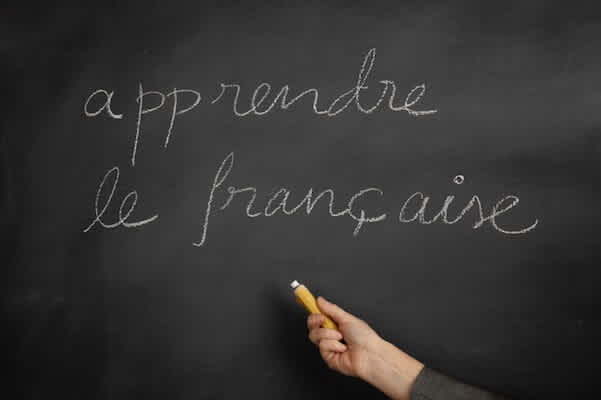
Finding the French course for you
Learning French is a common goal, and consequently, French courses or lessons are readily available. In-person courses, which are the more traditional approach, can be effective if the schedule and location align with your needs . However, it's crucial to conduct thorough research beforehand, as the quality of these courses can vary significantly.
6 best tips to learn French quickly and effectively
To effectively learn a new language, integrate it into your daily routine (instead of relying on marathon study sessions).
Dedicate a small portion of time each day to practicing French; even just 15 minutes contributes significantly to rapid progress .
Incorporate a French podcast into your routine, whether it's focused on language learning or a topic of personal interest. You may have trouble understanding everything at first, but exposure to spoken French hones your ear for the language.
Watch films or TV series in French with French subtitles, challenging yourself to comprehend the language. Using English subtitles is an option, but opting for French subtitles enhances the challenge and understanding.
Explore French music by finding artists in your preferred genre. Read the lyrics while listening, and soon you'll find yourself singing along in French.
Engage in French conversations with a language partner. Speaking with someone else is an excellent way to test and enhance your language skills. Partnering with a French speaker learning your language creates a mutually beneficial learning experience.
For French learning, try Babbel
We’re committed to making sure you get the most out of learning French. We offer a free first lesson in every language so you can get a feel for if Babbel works for you. And if you don’t like it, we have a 20-day money-back guarantee — no questions asked.
Try a free French lesson with Babbel and see for yourself how quickly you’ll be on your way to speaking French with confidence — like you’ve always wanted to!
Recommended by learners like you
Choose a language course, browse our learning topics.
- Learn French
- How to speak French
- French phrases
- French lessons
- Best way to learn French
- French grammar
- French vocabulary
- French Language Levels
- Foreign Languages
- Test Babbel Live For Free
- Live Online French Classes
Discover All Babbel Products
- Babbel Live
- Babbel Podcasts
- Babbel For Business
- Babbel As A Gift
- Babbel Magazine
- Inside Babbel
- Refer A Friend
About Babbel
- Customer Service
- Babbel Affiliate Program
- Partnerships
Real French for Travelers
On your own schedule. at your own pace..
Real French for Travelers Complete Online Course gives you that freedom. Learn from someone who’s been in your shoes, not from a corporation. It’s easier than you think, especially with short, clear videos that’ll show you exactly how to say things and what it all means.
Choose among three options: the complete course, just the Foundations (Part 1) , or Situational French for Travelers (Part 2) to go deeper.
Why learn French?
(it’s easier than you think.).
You won’t have to ask, “Do you speak English?” anymore, and won’t that feel good? (You’ll love it. And feel proud of yourself.)
You’ll do things differently than your fellow tourists because you’re making the effort to learn like an insider. You don’t need to be fluent to do this. You can learn a basic French framework then build as you go. Step-by-step.
What’s even better than a phrasebook?
Real French, that’s what.
Get the complete course or just the first (or second ) half.
Scroll down to access two free sessions!
It’s the closest you can come to learning French in Paris.
(Café au lait not included …)
With real French, you KNOW what you’re saying, and others do, too. You can BUILD on what you learn because it’s real French. Real grammar. Real vocabulary.
Real. Isn’t that better? Especially when it comes to communicating with other people.
Read road signs and menus, ask for directions, ask for help if you’re lost or have a problem, or even strike up a simple conversation with a French person. (By the way, they love it if you make the effort to learn their language. You’d feel the same way.)
Real French for Travelers: The complete online course. Or the basics. Or Part 2, if you’ve had some French. Whichever you choose, it’s yours to keep. Review, practice, and master (all for the price of about 4 lessons with a private tutor) in as little as 8 weeks.
Unlike other French programs, it’s designed specifically for travelers.
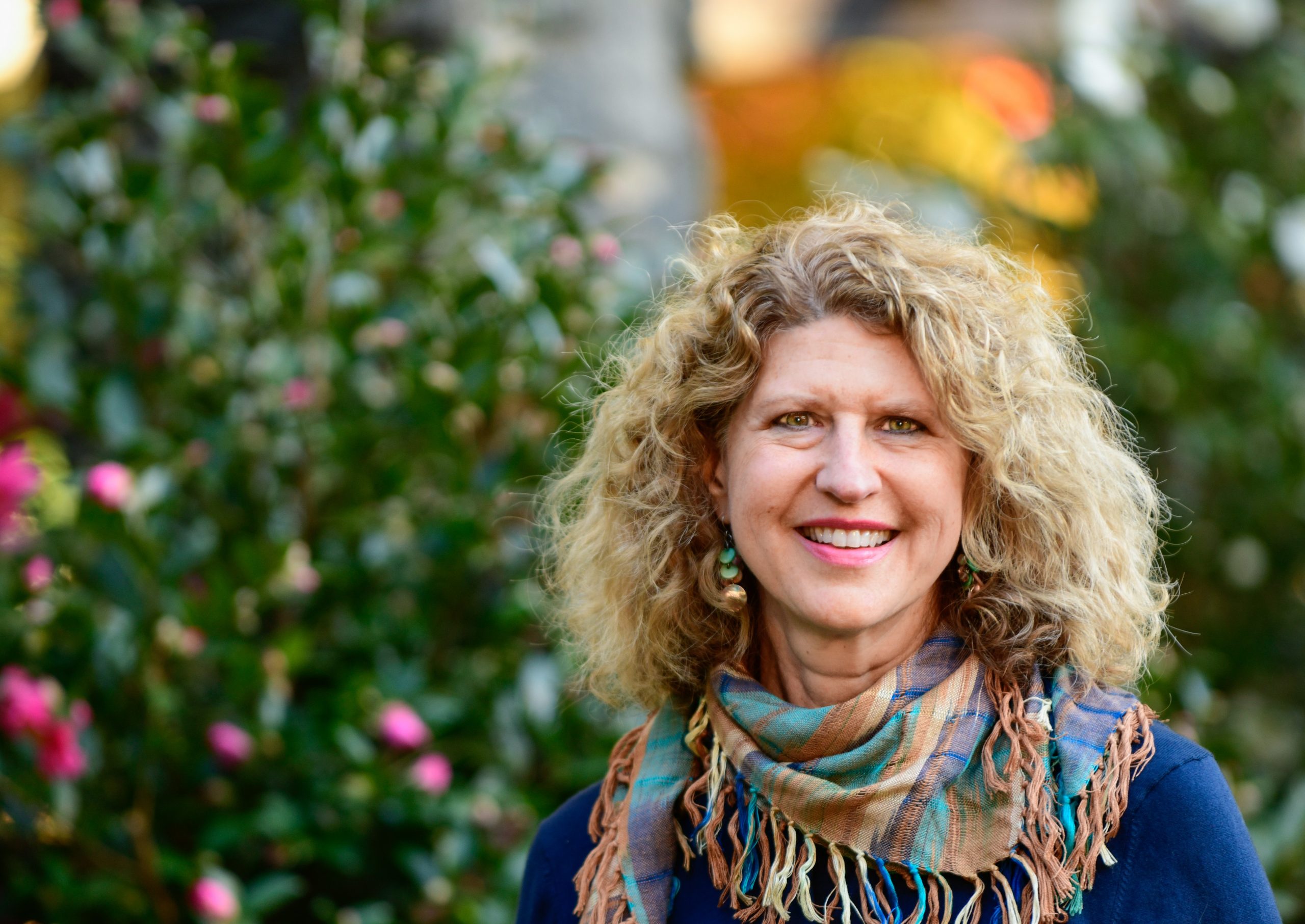
I’m Kyle and I’ll be your teacher for this course.
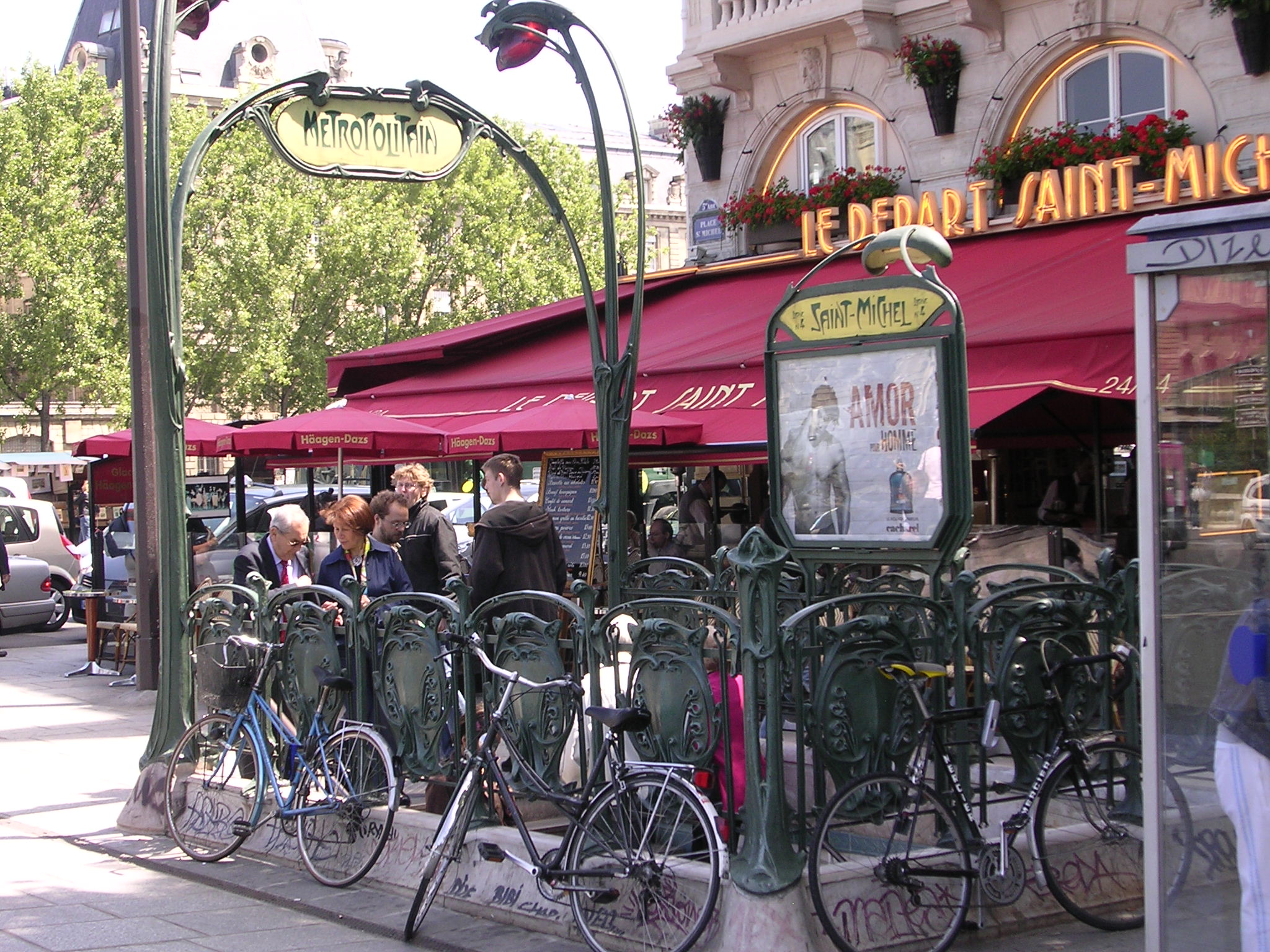
Real French in short, clear lessons. No intimidation here.
A course for travelers..
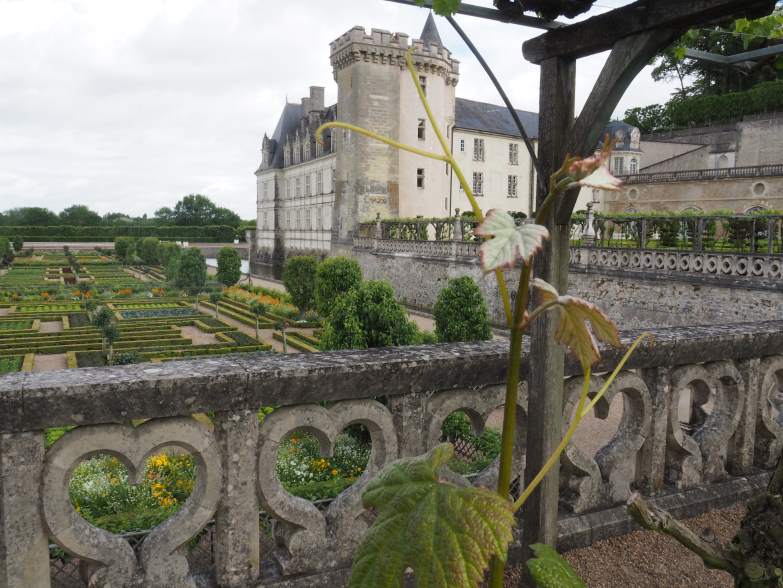
Real French for Travelers Complete Online Course
Includes: , clear, concise videos from zero to past tense. (42 in all), travel-oriented vocabulary covering a variety of situations, dialogues of realistic travel situations, downloadable reference (cheat) sheets, exercises for mastery with answer key, helpful travel tips throughout the course, quick-start phrases after each section give you a head-start in communicating, exercises to help you in listening comprehension, comprehensive pdf workbook that accompanies the videos, full 30-day money-back guarantee if you’re not happy with the course.
What students say
“ Real French for Travelers” online training is excellent! This training provided the right topics at the right pace for me to learn French.” -Cris L.
“i’ve tried a few other resources, but this one was the most comprehensive and easy to follow for a beginner. it’s well laid out, the workbook and exercises are helpful, the pronunciation is clear and easy to repeat, love the vocabulary cheat sheets and travel tips.” -shanna b., “ i highly recommend this teaching platform for beginner as well as advanced students. it can also be an excellent refresher for those who have not studied french for some time. this course will make your visit to paris much more enjoyable without the angst of not having years of french study. bon voyage” -julia w ..
For questions about the course, write to: [email protected]
www.Oliversfrance.com
Cyber Monday Sale 70% Off - Start Your Free Trial - LIMITED TIME

20 Basic French Travel Phrases for Beginners

When traveling to a French-speaking country, having a basic understanding of the local language can greatly enhance your experience.
Learning a few essential French travel phrases not only enables you to communicate with locals but also shows respect for their culture and makes your interactions more enjoyable.
Today, we will introduce you to 20 basic French travel phrases that are perfect for beginners. Each section will focus on a specific category of phrases, providing translations, guidance, and example usage.
We will leave you with some tips for learning French at home. Follow this guide, and you'll be speaking French in no time.

20 French Travel Phrases
Let's dive into our comprehensive list of 20+ essential French phrases so you have the tools necessary to make yourself understood in France.
We will kick things off with greetings and polite expressions so you can conduct yourself well on your trip to France.
Greetings and Polite Expressions
When interacting with locals in a French-speaking country, it's important to start with a friendly greeting.
- Bonjour - Hello
The phrase bonjour is the most common and widely used greeting in French. It sets a positive tone for your conversation. You can use this greeting all day.
- Bonsoir - Good evening Bonne soirée - Have a good evening Bonsoir is used in the evenings, from around 6 pm onward as a greeting. Meanwhile, bonne soirée is used to express the desire that someone else will have a nice evening.
- Bonne nuit - Good night Just as in English, you would use bonne nuit as "good night" before going to bed.
- Au revoir - Goodbye When leaving someone at any time of day, au revoir is a polite and pleasant way to say "goodbye."
- Comment t'appelles-tu? - What's your name? (informal) Comment vous appelez vous? - What's your name? (formal) Quel est ton nom? - What is your name? (informal) Quel est votre nom - What is your name? (formal)
Once you have greeted someone, you can ask "What is your name?" either formally or informally, as the situation dictates.
- Je m'appelle... - My name is…
- Je viens de ... - I come from... La France - France L'Allemagne - Germany L'Espagne - Spain Le Royaume-Uni - The UK Les États-Unis - The US
- (Comment) ça va? - Are you alright? (most informal) Comment vas-tu? - How are you? (informal) Comment allez vous? - How are you? (formal) To show interest in someone's well-being, ask "How are you?" It's a common way to initiate a friendly conversation and display your courtesy. You can reply to ça va? with ça va or ça va bien , both of which mean "I'm alright". Or, use je vais bien , which also means "I'm alright".
- Merci - Thank you Learning to say "thank you" in the local language wherever you go will endear the natives to you. On your trip to France, you will find yourself saying merci all the time.
For instance, with the phrase ça va bien, merci. Et toi?, meaning "I'm good, thanks. And you?"
- De rien - You're welcome If someone thanks you in a French-speaking country, the standard reply is de rien .
- S'il vous plaît - Please (formal) S'il te plaît - Please (informal) When asking for something in a hotel, restaurant, among friends, or in any other situation, it is always best to say "please". As you can see, there is a more formal and less formal way to say "please". Use the informal with friends, and the formal in other social situations. If you are ever in doubt about whether to use formal language, it is best to err on the side of caution and go for the formal structure.
- Je suis désolé - I am sorry It is always worth knowing how to say sorry if you need to apologize for anything in French, for instance not understanding something or not knowing the answer to a question.
- Je ne comprends pas - I don't understand Je ne sais pas - I don't know
Can You Speak English/ French?
With the following phrases, you can swap out anglais ("English") and français ("French") with any other language, as needed.
- Pourriez vous parler français - Could you speak French?
- Parlez vous anglais? - Do you speak English?
- Je ne parle pas français - I don't speak French
- Je parle un peu français - I speak a little French
- Parlez lentement, s'il vous plaît - Speak slowly, please
Useful French Travel Phrases
One of the most important things to learn in French is how to ask for directions. Let's look at some common questions in French regarding directions.
- Où est la plage/ le gare - Where is the beach/ the train station You can use où est...? for any other singular object, such as la tour Eiffel ("the Eiffel Tower") and le bus ("the bus"). Just make sure to note the gender of the object so you use the right article.
- Où est le guichet? - Where's the ticket booth? Note that you can also say je cherche... , which means "I am looking for..."
- Où sont les toilettes? - Where are the toilets?
- Où sommes-nous - Where are we? As you can see, où means "where" in French. This is followed by a conjugated form of the verb "to be", être , and the object of the sentence.
- Excusez moi, je suis perdu - Excuse me, I am lost Finally, a handy phrase to know is "excuse me, I am lost". It's a good idea to keep a copy of your hotel information on your person so you can show people if you need help directing yourself home.
Miscellaneous Common French Phrases
Now that you have learned 20 French phrases for travel, we will list some other miscellaneous French phrases for everyday life in a French-speaking country.
- Je t'aime - I love you You will come across je t'aime in music, movies, and even on t-shirts, so it is worth knowing what it means. And you never know - you might want to use this French phrase yourself when you get to Paris, the city of love.
- Es-tu célibataire? - Are you single?
- Je ne sais quoi - I don't know what Paris is known as a romantic destination as it has a certain je ne sais quoi in the air that makes it so unique and magical.
- Je voudrais (un café) - I would like (a coffee)
- Un verre de vin - A glass of wine When in France, you will want to get your hands on a coffee or a wine as soon as you find the right spot to sit and people-watch.
- Je voudrais acheter... - I would like to buy…
- Combien ça coûte - How much does it cost?
- C'est trop cher - It's too expensive
Asking a question in French
Finally, a note on forming a French question. In general, to ask a simple question in French, you can use est-ce que. Take a look at the following basic French phrases.
- Est-ce que vous parlez français? - Do you speak French?
- Est-ce qu’il parle français? - Does he speak French?
- Est-ce qu’elle parle français? - Does she speak French?
How to Learn French at Home
So, now that you have this useful vocabulary list to get you started, you will want to know how to start learning French at home. One great method is to watch French TV shows and movies.
This provides natural exposure to French slang and colloquialisms , idiomatic phrases, the French accent, and French culture. You can find great French shows on Netflix and Lingopie. Both streaming services offer French and English subtitles, and Lingopie has bonus language-learning features like digital flashcards and an interactive transcript.
You can also listen to French podcasts and French songs like La Vie en Rose and Je ne Regrette Rien. Any engaging resource that familiarizes you with French pronunciation and introduces you to new French words in a natural way is a great language tool.
Of course, you can also sign up for online French classes or find a private tutor. Many language learners also enjoy using language-learning apps to supplement their learning. You can also buy a French phrasebook if you want to have all of your useful French phrases in one place.,
FAQs About French Phrases for Travelers
Now, let's take a quick look at some frequently asked questions about basic French phrases for travel.
Is there another way to ask "où sont les toilettes?"
Yes, there is another way to ask où sont les toilettes? which means "Where are the toilets?" You can also say où est la salle de bain? , which means "Where is the bathroom?"
Both are appropriate in public and formal situations.
Is it rude to say "je ne comprends pas" in French?
No, it is not rude to say "I don't understand" in French. You can make the statement more polite by saying je suis désolé(e), je ne comprends pas , meaning "I'm sorry, I don't understand".
You might want to add répétez s'il vous plaît , meaning "can you repeat, please", or je ne parle pas français , "I don't speak French."
How do you say "s'il vous plaît" informally?
The phrase s'il vous plaît ("please") literally translates as "if it pleases you", but it is used like "please" in English. You can say "please" informally in French by switching out the vous ("you" - formal) for te ("you" - informal). So, it sounds like s'il te plaît.

Summing Up: Basic French Travel Phrases
Now that you have started to learn these 20+ basic French words and phrases, you are ready to dive into the French language and start practicing today.
Whether you're asking for directions, ordering food, or engaging in basic social interactions, these phrases will serve as a valuable tool during your journey.
French learners can head over to Lingopie's streaming site for access to a host of awesome French TV shows and movies with interactive learning features.
Your language-learning journey starts today with the help of Lingopie and this comprehensive vocab guide. Have fun learning French at home.

Milena Andrade

Learn German with How to Sell Drugs Online (Fast)

Best Podcasts To Learn Portuguese
You might also like.
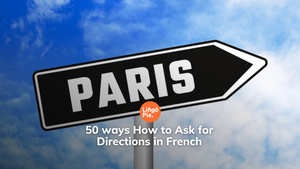
50 ways How to Ask for Directions in French

18 French Pick Up Lines Every Learner Should Know

Human Body in French: A Guide to 30 Essential Terms

French Animal Sounds: A Fun Way to Learn French
Get the secret guide to language learning with tv and music for free, browse posts by popular tags.
Learn Languages Fast
I Think Languages is your dedicated guide on a journey to becoming a multilingual expert.
I’ve gathered top-notch resources for language learning, which will aid you in achieving proficiency in languages like Spanish, French, German, or any other language of your choice.
These invaluable materials are developed from my extensive experience as a language educator.
Every tip and resource you’ll find on this site is completely free and is updated daily for an optimized learning experience.
Free Resources To Learn Fast

Manger and Boire : French Verbs for Eat and Drink
Talking about food and drink is one of the first things you learn when learning French. We all have to
AP Spanish Language Practice
Looking to improve your Spanish skills to take your AP exam? Getting the highest score is just a click away!
English vs Spanish Language
Are you an English speaker and looking to learn Spanish? As siblings descended from Romance languages, they naturally share similarities.

French and Spanish Language Comparison
Do you wanna know how the two most passionate languages are similar? Let’s talk about the differences and similarities between

AP Spanish Language and Culture Exam Preparation Workbook PDF
Do you want to get a 5 on the AP Spanish language test? Here’s the key! Download the AP Spanish

How Much/How Many/ How Long in French : Combien ?
People are obsessed with numbers, said the Little Prince. “How tall are you?” “How much do you weigh?” “How many
Latest Readings with Slow Audio
Improve your listening and reading skills with these bilingual stories.
Free Lessons
There’s always something new to learn here!
There’s a way to master languages faster. Trust an expert!
Readings with Slow Audio
The reading and listening practice you need in short readings with slow audio, French transcript, and English translation.
Think Languages LLC
1309 Coffeen Ave, Suite 1200, Sheridan WY, USA, 82801
+1 917 9937880
My Account | Contact Us |
No products in the cart.

Learn French for travel
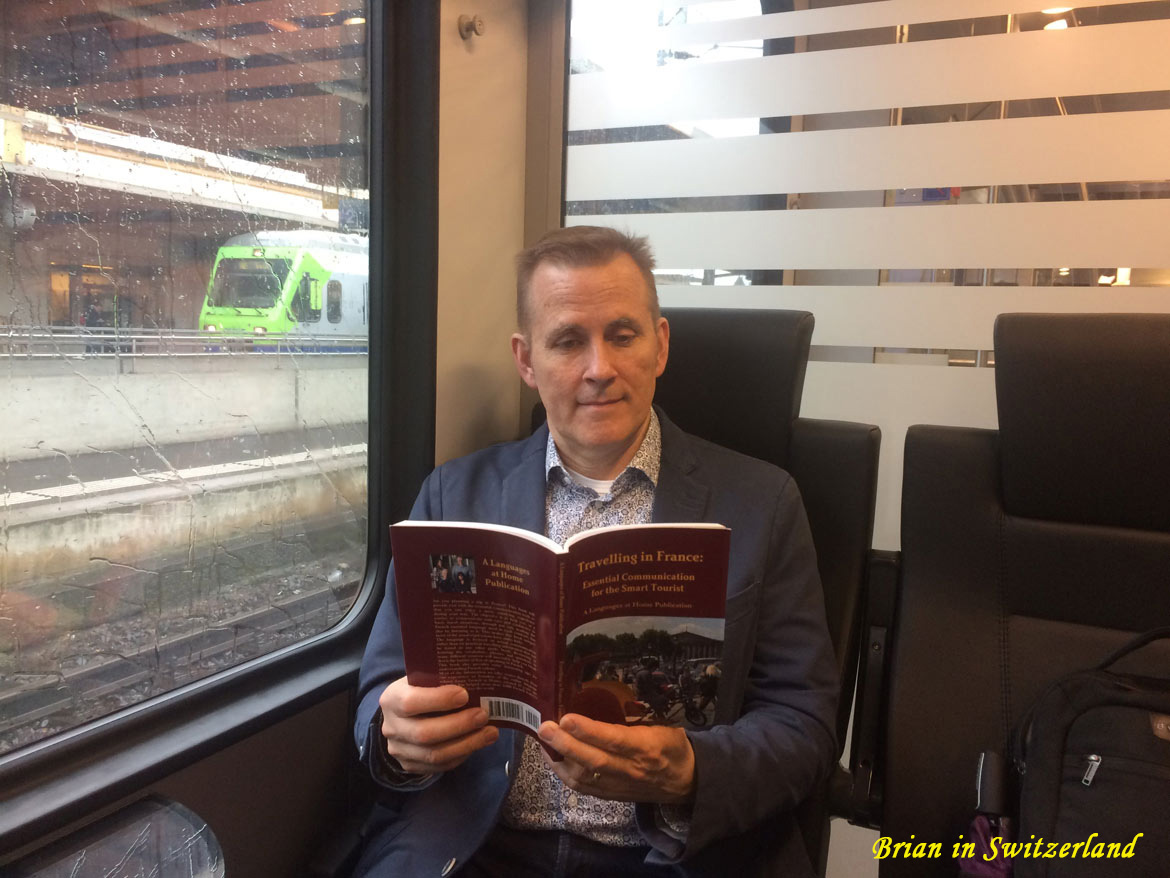
What is the French for Travelers Course via Skype, Google Meet or Zoom?
The objective of this French for travelers course is to help you prepare for your trip to a French speaking country so that you can fully enjoy it by speaking to the locals. Learn how to communicate your contact details with ease. Be able to ask vital questions during travel. Speak the correct polite forms of French. Learn how to change a reservation, and so much more. Each Conversational French for Travel lesson is personalized. Your teacher will help you get comfortable in communicating with the French locals in typical traveling situations.
We’ll assess your skill level and learning objectives in order to personalize your learning path. Each French lesson will last up to 40 minutes. After the lesson, you will receive notes and 2 exercises to complete before the next lesson.
The teacher will set learning goals for each lesson. We’ll practice your new goals via conversation, role play, exercises, games, and quizzes in addition to your assigned tasks. If you need help in specific areas, we’ll address the issues before moving on to the next subject. The objective is to have you feel comfortable by the end of the lesson in addition to your newly learned skills.
Who Are The French Travelers Lessons For?
The Travelers French Lessons are for anyone who can allocate at least 1h of French learning during the week (40-minute lesson + 2 exercises for homework). You don’t need any French learning experience, beginners to advanced learners are welcome! This learning path is designed for people who wish to learn conversational French for travel .
How Does this French Course Works?
After evaluating your current French level and your objectives with an advisor, a teacher will organize with you a one-to-one 40-minute French for travelers lesson at a day and time most convenient for you. The lesson will take place on Skype or any other instant messaging and voice chat applications available on the net such as Google Hangouts , Zoom, Viber, etc. .. At the end of the lesson, we’ll schedule your next lesson date directly with your teacher. After each lesson, the teacher will send by email the notes taken during class time along with 2 exercises for homework for the student to complete before the next lesson. Your French teacher will correct all homework assignements. ( Most private language schools do not offer this additional service which it is crucial in order to make real progress. ) The homework’s purpose is to allow the student to practice the new elements taught during the lesson as well as to acquire new vocabulary and idiomatic expressions.
This service makes our French for travelers course complete and unique!
EXTRA: In addition to the lessons and the homework and in order to practice your French on a daily basis, you will be able to join to answer to The “Question du Jour” in our private Facebook group . It is a place where all students can respond in French to our daily questions. After you’ve responded an online French tutor will read and correct your response. This is a great way to test your French language skills on a daily basis. This value added service is completely free to all French for beginners, intermediate, and advanced students.
Do You Want More Information About the French for Travel Course?
Please fill out this Contact form and a language advisor will get back to you within 24 hours.
Price Options
Thank you for paying in the currency of your country of residence . Euro for European residents; GBP for British residents; USD for USA, CA, AU and rest of the world except Europe .
Save money on bulk French lessons. Prices do not include study materials.
For a class of 2 people, there is an additional $8 per lesson; an invoice will be sent to you accordingly.
4 pack lessons
8 pack lessons, 12 pack lessons, 22 pack lessons.
For a class of 2 people, there is an additional 7€ per lesson; an invoice will be sent to you accordingly.
- 38 €/lesson
- 152 € Total
- 37 €/lesson
- 296 € Total
- 36 €/lesson
- 432 € Total
- 35 €/lesson
- 770 € Total
For a class of 2 people, there is an additional £7 per lesson; an invoice will be sent to you accordingly.
- 40 Fr/lesson
- 160 Fr. Total
- 39 Fr/lesson
- 312 Fr. Total
- 38 Fr/lesson
- 456 Fr. Total
- 37 Fr/lesson
- 814 Fr. Total

Course Requirements
- PC, Mac, or Android Device
- Broadband Internet Connection
- Travelling eBook
- 1 copy of French Accent Magazine (optional but strongly recommended)
Testimonials

My tutor, Virginie is amazing, patient and well-motivated. During the lessons we often have a laugh about life in general. We’ll email detailed notes and homework after the lesson. Time spent on my homework varies from week to week, and I do value the variation of questions that Virginie sets.


Best way to learn French for travel 🌎

Before we start, one thing to keep in mind - You don't need to know everything
- Your way around asking directions and questions
- The basics of French politeness
- How to behave to get the best service in restaurants and shops
- A minimum of spoken French to understand when people are talking to you
- And, a minimum of written French to understand signs and other posters
- And finally, how to spark up a conversation with a native doesn’t hurt
So, how can you learn all of that?
The internet of all things.
However not practical, it is possible.
Rely on an app
Again, this is NOT time efficient.
Buy a phrase book
Sentence pack - 100 french phrases for travel, go with an online course.
- HIGHLY specific
- Comes with email support
- Saving you LOADS of time (and money)
- Extra resources and links

In fact, the reason why it’s so great is because I built it with the help of the Just French It Community.

So, ready to take on France?
Want to share a laugh with the little lady whose guesthouse you are renting in the middle of the French countryside?
The French for Travellers Course is for you.

BECOME A CONFIDENT FRENCH LEARNER
In the 6-day course, you'll : - discover how to truly commit to learning french, - learn why immersion might not work as you expect, - access hand-picked resources for accelerated learning, - and master strategies to tackle and overcome common hurdles, how to understand french sentences 🇫🇷.
It’s time we talk about how to understand French sentences. Because that can be a big problem for French learners. If you’re here today, reading
What does Ne Me Quitte Pas mean?
Ne Me Quitte Pas is one of those very famous French songs you hear everywhere. But what does Ne Me Quitte Pas mean? Well let’s say it’s not a happy song.
Speaking French in France 🇫🇷 is awesome
👉 MORE HERE 👈 If you intend to travel to France, I really recommend to learn a bit of French. Not that you ABSOLUTELY need it,
Leave a Comment Cancel Reply
Your email address will not be published. Required fields are marked *
Unconventional language hacking tips from Benny the Irish polyglot; travelling the world to learn languages to fluency and beyond!
Looking for something? Use the search field below.
Home » Articles » How to Speak French: The Faster Way to Learn French
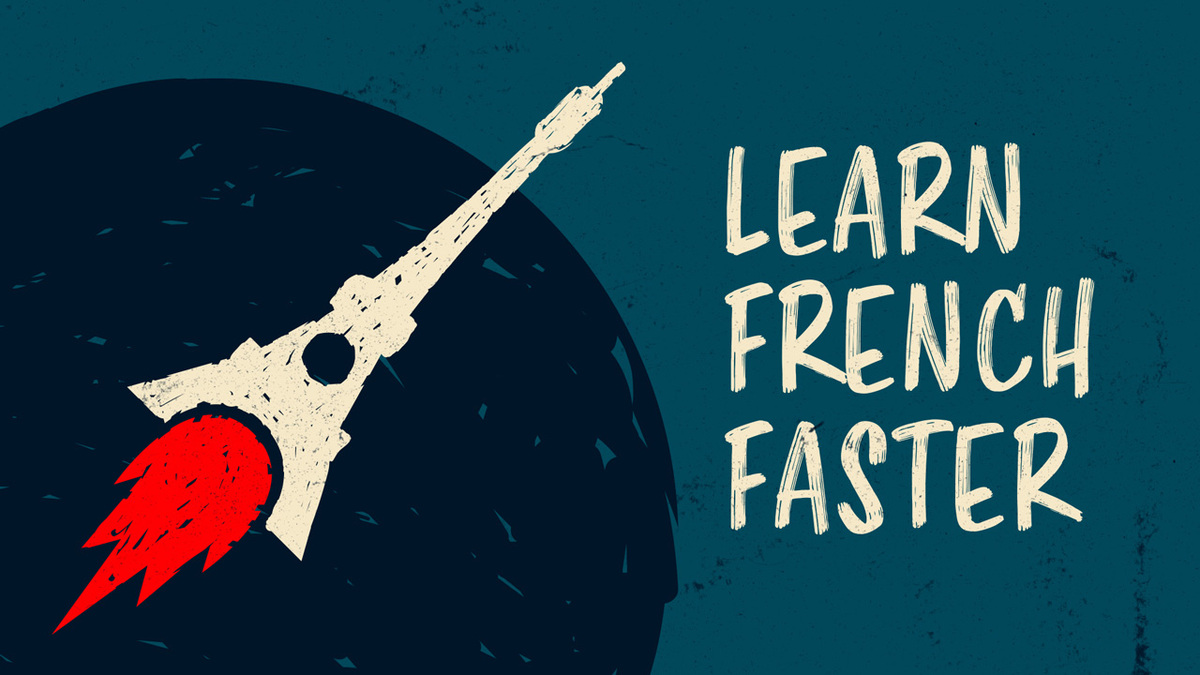
Full disclosure: This post contains affiliate links. ?
written by Benny Lewis
Language: French
Reading time: 11 minutes
Published: Mar 22, 2021
Updated: Apr 12, 2024
How to Speak French: The Faster Way to Learn French
So you want to learn how to speak French? Très bien!! I’m going to show you how to learn French, the fast way.
Millions of language learners around the world are already learning the French language, so you're in great company.
Plus, there are quite a few French-speaking countries (29 to be exact!) where you can practice speaking in Français . Francophone countries like Canada, Belgium, Luxembourg, Haiti, Monaco, and many African countries.
So you can learn to speak French faster than you think. In fact, my speak from day one method is the best way to learn French if you want to speak the language.
Yes, some aspects of French can be difficult, like with any language. But for the most part, French is an easy language to learn .
Follow these steps, and you'll be speaking French before you know it.
Here’s what we’ll be covering:
- How to find your reason and passion for learning French
- How to speak French and immerse yourself without leaving your home
- Creating your own French phrasebook that’s relevant to your life
- Using language hacks to make “difficult” French turn into easy French
- Learn how to have real conversations with native French speakers
- Learning conversational connectors in French to ease into speaking naturally
- How to learn French by focusing on the easy parts
If you'd prefer to listen rather than read, here's a video I made to go along with this article:
Step 1: Fall in Love with French
Lesson: Ask “Why” First – NOT “How/What”
What's the key to speaking French? Passion.
French is the language of love. And to speak any language, you've got to fall in love with it. Or at least find a really good reason to stick with it, even when the going gets tough.
Your big why for learning French will keep you motivated through the ups and downs of learning a new language. It will be something to hold onto whenever you feel frustrated with learning French and start to wonder “What was I thinking?”
Everyone has their own big why for speaking French.
Here are some really good reasons to fall in love with French:
- To travel the world. French is an official language in over 25 countries, and is widely spoken in many more.
- To have conversations with French-speaking family members.
- To read French literary classics (think Victor Hugo, Émile Zola, Alexandre Dumas and Gustave Flaubert).
- To connect with French native speakers.
- To get an inside view of French culture.
Why do you want to learn French? Find your own personal, meaningful reason to study French, and use it to keep you on track throughout your language journey.
Once you know your why , it's easier to stick with the following steps in how to learn French.
Related resources: Flex your French writing muscles , how I learned French on the toilet in 6 months , 121 French words and phrases to talk about your job
Step 2: Create a Mini-France in Your Home
Lesson: Creating an Immersion Environment for Home, Work, or Play (Helpful for all languages!)
It's easier to speak French when you're surrounded by French. But you don't need to live in France to immerse yourself in the language. In fact, you can surround yourself with French wherever you live.
Here are some of my favourite tips you can use to immerse yourself in French.
- Turn your smartphone into a French speaker . Switch the language settings on your phone to French. You can do the same with your computer.
- Look for French speakers in your city. Most cities around the world, big or small, will have a community of French speakers. Chances are, there's one near you.
- Watch French TV and movies. Switch on the subtitles to speed up your learning.
- Read articles and books in French. LingQ is a helpful tool for doing this.
- Listen to French radio and podcasts (my favourite is FrenchPod101 ). You can learn a lot of French by listening to French songs .
Want to learn more about the immersion from home approach? Then check out how I learned Japanese while living in Spain and Egyptian Arabic while living in Brazil .
Related resources: French YouTube channels to level up your skill , how to learn French with Instagram
Step 3: Write Your Own French Phrasebook
Lesson: Conversational French: 25 Ways to Start a French Conversation
You'll learn French much faster if you focus on words and phrases that are relevant to your life.
Plus, when you have real conversations in French (I'll come to that in a moment), you'll be able to talk about yourself.
That's why I recommend creating a personalised French phrasebook . This is a collection of words and phrases that are relevant to you.
I suggest starting your personal phrasebook with:
- Bonjour! Je m’appelle [name]. Ça va? – “Hello! My name is [name]. How are you?”
- Et toi? – “And you?”
- Parle-moi de toi – “Tell me about yourself.”
- Je viens de [your home country] – “I'm from [your home country].”
- Dans mon temps libre, j'aime [your favourite activities] – “In my spare time, I like [your favourite activities].”
- Je veux apprendre le français parce que [your reasons for learning French] – “I want to learn French because [your reasons for learning French].”
- Je suis [occupation] – “I'm a [your occupation].”
- Qu’est-ce que tu aimes? – “What do you like?”
- J’aime… – “I like…”
- J’adore… – “I love…”
- Je déteste… – “I dislike…”
- Je pense que… – “I think that…”
- Any other interesting information about yourself (Have you learned any other languages? Travelled to unusual places?)
And of course, it’s a good idea to learn some key questions to ask to keep the conversation flowing. Here are some ideas to get you started:
- Est-ce que tu aimes… – “Do you like…”
- Parlez-vous français? – “Do you speak French?”
- Tu parles d’autres langues? – “Do you speak other languages?”
- Comment tu t’appelles? – “What’s your name?”
- Tu es où? – “Where are you?”
- Qu’est-ce que tu vas faire? – “What are you going to do?”
- Je peux t’accompagner? – “Can I join you?”
- Tu voyages beaucoup? – “Do you travel a lot?”
- Tu peux répéter ça? – “Can you repeat that?
- Comment dire…? – “How do you say…?”
- Quoi de neuf? – “What’s new?”
Related resources: French phrases for travelers and tourists , 10 ways to say “How are you?” in French and 10 ways to respond
Step 4: Accept that You're Going to Sound Funny at First When You Speak French
Lesson: French Pronunciation Guide: How to Sound More Like a Native French Speaker
If you've never spoken out loud in a foreign language, it can feel awkward.
This is especially true with speaking French.
French includes sounds that don't even exist in English. When you've only ever spoken one language, forming your lips and tongue into new shapes to make unfamiliar sounds can feel jarring, like hearing a wrong note in a well-known song.
Some language learners let this hold them back. They feel embarrassed about saying things wrong and making mistakes.
Push through this fear by speaking French even when you feel silly. You'll learn French much faster that way.
And trust me, no one's going to laugh at you.
Related resources: 35 free online French language classes and resources , the French alphabet: why it’s easier than you think , French exercises online: 12+ exercises to improve your French language skills
Step 5: Fast-Track Your French with Language Hacks
Lesson: Language Hacking French: How to Learn French, the Faster Way
Language hacks are shortcuts that help you learn a language faster. They're ideal if you want to learn to speak French.
Here are a few of my favourite language hacks that can speed up your French learning:
- Spaced Repetition Systems (SRS). SRS is a great method for memorising vocabulary and phrases using virtual flashcards. My favourite SRS tool, Anki, is free and allows you to create your own flashcards, so you can build a deck from your personalised French phrasebook.
- Mnemonics. A memory palace is an effective way to burn French words onto your brain.
- The Pomodoro Technique . Break up your study sessions into 25 minute chunks. This gives you better focus, so you learn more in a shorter time.
Related resources: How to use social media for instant French immersion , Listen to French: 50+ incredible French listening resources
Step 6: Have Real Conversations with Native French Speakers
Lesson: Speak from Day One
The most effective way to learn a language is to speak from day one . This is especially true if you want to have conversations with native French speakers .
Where can you find native French speakers to practise with? It's actually really simple.
No matter where you live you can still find people, either online or offline, to speak with in French. I like to search for native French speakers on:
- italki (our review is here ). This is the first place I go to find French tutors and pay for one-on-one lessons (reasonably priced).
- Teacher AI which lets you practice speaking with an AI tutor – you’ll get a very similar experience to practicing with a native speaker.
- Meetup.com . Most major cities have a Meetup for French speakers or French learners. CouchSurfing is another of my favourite ways to meet French speakers.
- HelloTalk . This free mobile app helps you find French speakers who are learning your native language.
You may also like to join my Speak in a Week crash course to give yourself a huge confidence boost in your French speaking skills after just seven days. It's free.
The best way to begin speaking from day one is to simply learn how to say “hi”! A few German greetings you can use:
- “Hello” – Bonjour or Salut
- “Hey!” – Coucou
- “How are you?” – Ça va?
Related resources: French greetings , 10 ways to say “goodbye” in French
Step 7: Use Conversational Connectors for More Natural Conversations
Lesson: Conversational Connectors: How to Fake Having a Conversation Just After Starting to Learn a Language
Conversations involve a lot more than simply exchanging bare facts. They would be awfully dull if they did. In a world like that, a conversation with a work colleague might go something like this:
You: “How was your weekend?” Them: “It was fine.” You: “Mine wasn't.” Them: “Oh.”
Boring, right?
I bet you don't talk like this in your native language. The same conversation, spoken more naturally, might sound more like this:
You: “So, how was your weekend?” Them: “It wasn't bad, thanks for asking. How about yours?” You: “Actually, it wasn't that great, to be honest.” Them: “Oh, I'm sorry to hear that. What happened?”
See how much better the conversation flows?
Both conversations communicate essentially the same information, but the second one uses conversational connectors . These are short phrases that serve to make the conversation sound more natural, and less jarring and “staccato”.
Here are a few examples in French:
- “To tell you the truth” – à vrai dire
- “In my opinion” – à mon avis
- “By the way” – à propos
- “On the other hand…” d'autre part…
- “That is to say…” – c'est-à-dire…
Related resources: 111 core French words , French slang
Step 8: Focus on the Easy Aspects of French
Lesson: Why French is Easy: How to Understand Spoken French
French really isn't easier or harder to learn than any other language, but you can quickly forget this if you only focus on the difficult aspects of French.
Whenever you get discouraged, think about all of the ways that French is actually an easy language to learn :
French is an easy language because it:
- Has no cases (nominative, accusative, etc), unlike Russian .
- Is not a tonal language , unlike many African and Asian languages.
- Shares a lot of vocabulary with English due to their intertwined histories.
- Uses the Latin alphabet.
- Only has two noun genders, unlike German, which has three.
Remember these facts when you're learning how to speak French, and the tougher aspects of the language suddenly won't seem so bad!
Related resources: Learning French after 10 language fails , 10 good reasons to learn French
You Can Do It!
Everyone who has ever learned to speak French (even native speakers, who learned when they were kids) was once a beginner in the language. They all managed to learn to speak French fluently, and so can you.
You just need to use your French as much as you can. Spend as much time immersed in French as you can. And, most importantly, believe in yourself .
Just remember these important steps:
- Find your “Big Why” for learning French
- Immerse yourself in the French language by creating a Mini-France in your home
- Make smart use of language hacks
- Use conversational connectors to sound more natural
- Speak from day one – especially with native speakers
- Realise that French is much easier than you think
Finally, if you're looking for a structured French course, one of my favourite ways to learn French is with the FrenchPod101 podcast. Check it out here:
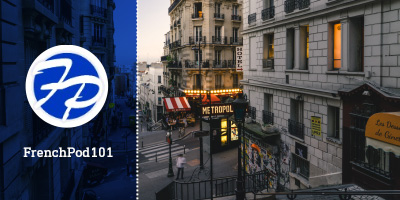
Bon courage !

Benny Lewis
Founder, Fluent in 3 Months
Fun-loving Irish guy, full-time globe trotter and international bestselling author. Benny believes the best approach to language learning is to speak from day one .
Speaks: Spanish, French, German, Italian, Portuguese, Esperanto, Mandarin Chinese, American Sign Language, Dutch, Irish
Have a 15-minute conversation in your new language after 90 days
- Write for us
- Privacy Policy
- Terms and Conditions

Learn 150+ Basic French Travel Phrases To Master For Your Next Trip To France
- Post author: Elijah Logan
- Post last modified: April 11, 2023
- Post category: French Vocabulary / Popular Reviews

If you want to explore France thoroughly, especially the city of love, you must know the basic French travel phrases.
Although English is a universal language, it is not well-known in most French-speaking countries. Thus, to get around, you need to learn how to speak basic French.
Traveling to any place where you do not speak the native can be frustrating, especially steering your way while exploring.
So, to ensure you get around different French destinations quickly, you need to learn some essential travel French phrases. Even basic French knowledge can help you interact with locals and learn about the regular lifestyle.
Keeping this in mind, today, I bring you 150+ basic French words and phrases for travel to ensure your next trip to France is unforgettable.
Table of Contents
Basic French Words For Travel In France: Learn Useful French Phrases
Traveling is not only about moving from one place to another. There are a lot of aspects connected to this journey.
While traveling to an unknown place, you are bound to meet new people, interact with strangers, ask for their assistance when lost, go dining, shop, & more.
All these activities do not seem much of a task when you are in a place where you can easily interact with others.
However, in an unknown land, all these tasks seem like dreadful things that may even prompt you to never leave your accommodation in French.
But that is not why you or anyone would fly out for miles to the country of love, France. Exploring another country is a once in a lifetime opportunity. Thus, you need to make the most out of your visit.
And to help you with this, below I have a list of over one hundred & fifty common French phrases & words categorized as per various activities you will enjoy there. So let us begin and start our learning before that trip of yours.
26 Basic Conversational French Phrases
You can never go by in a foreign land if you can not speak even the bare minimum of the native language.
You do not need to be a pro in the French language. But you should at least know the words & phrases used the most in everyday conversations by natives.
Below is a list of some essential words & expressions that you will often use during your travel time in France.
Knowing these everyday phrases will help you interact with natives in a comfortable & sophisticated manner.
- Hello / Good Morning- Bonjour !
- Good Evening- Bonsoir !
- Hi (Informal)- Salut !
- Nice To Meet You- Enchanté!
- Welcome- Bienvenue!
- Yes / No- Oui / Non .
- How Are You?-Çava?
- I’mWell.- Je vais bien.
- How’s It Going?-Ça roule?
- I Am Well, And You?-Je vais bien, et vous?
- Do You Speak English?-Parlez-vous anglais?
- I Do Not Speak French.-Je ne parle pas français.
- I Don’t Understand.- Je ne comprends pas.
- Where Are You From?-D’où venez-vous?
- I Am From …- Je suis de …
- What Is Your Name?-Quel est votre nom?
- My Name Is…- Je m’appelle …
- Mrs. / Mr. / Miss- Madame / Monsieur / Mademoiselle
- Cheers!-Santé!
- I Don’t Know- Je ne sais pas.
- Thank You Very Much.- Merci beaucoup!
- You’re Welcome- De rien!
- Excuse Me / Sorry- Excusez-moi/Pardon !
- Sorry- Je suis désolé (e).
- See You Later!- À tout à l’heure!
- Goodbye- Au revoir!
29 Basic French Travel Phrases For Directions: Beautiful French Language
Getting lost in a new city or country is a thing that most people can relate to. I remember my first trip to Paris. I was so engrossed in exploring the architectural beauty around me that I got separated from my travel group.
I freaked out and was on the verge of crying. I only knew the name of the hotel I was staying at and some French phrases I had learned.
Suggestion: 100+ Tasty Vegetables In French To Make Your Vocab More Yummy . (adsbygoogle = window.adsbygoogle || []).push({});
I asked a passerbys the directions for the hotel by saying “Quelle est la direction de l’hôtel Wallace, s’il vous plaît ?” (What is the direction of the Wallace Hotel, please?) and thus reached there safely.
Although I spent the rest of my day in my room. I was glad that at least I could find my way back. It all happened because I knew how to ask for directions in French. Knowing the essential phrases for directions can save you from the panic of getting lost.
Memorize the below-mentioned basic French phrases for directions to ensure you do not get panics like I did.
- Directions- Les directions
- North- Nord
- East- L’est
- West- L’ouest
- There- Là-Bas
- Where Is … Please?- Où est… ,s’il vous plaît?
- I’mLost.- Je suis perdu(e).
- Is It Far?- Est-ce que c’est loin?
- Is It Close?- Est-ce que c’est proche?
- Which Way?- Par où?
- It’s To The Right / Left.- C’est à droite / à gauche.
- Turn Right.- Tournez à droite.
- Turn Left.- Tournez à gauche.
- Straight Ahead.- Tout droit.
- Over There.-Là-Bas.
- Where Are We?-Où sommes-nous?
- Can You Help Me? -Pouvez-vous m’aider?
- To The Left- À gauche.
- To The Right- À droite.
- Straight Ahead- Tout droit.
- Is It Far/Close By?- C’est loin?/C’est près d’ici?
- The Exit- La sortie
- It’s To The Left- C’est à gauche.
- It’s To The Right- C’est à droite.
- It’s Straight Ahead- C’est tout droit.
27 Basic French Words & Phrases For Transportation
The French transportation system is among the best in the world. Although no country can touch Japan regarding convenient public transportation, France also offers an excellent system.
You will most likely take trains and buses to get around the country. They are an affordable means of transportation and can help you save a lot on your travel.
With a readily available transit system, you will face no problem traveling from one place to another. Transportation prices vary over distances which is not too much.
To get your way through the various modes of transportation, there are some essential words & phrases that you should learn in French.
- Transportation- Le transport
- The Bus- Le bus
- Bus Stop- L’arrêt de bus
- A Taxi- Un taxi
- Train- Le train
- Subway- Le métro
- Airplane- Un avion
- Car- Une voiture
- Ticket- Un billet
- Ticket Window- Le guichet
- Airport- L’aéroport
- Bus/ Train Station- La gare
- Early- En avance
- On Time- À l’heure
- Delayed- En retard
- Cancelled- Annulé
- Do Not Enter.-Entrée interdite.
- Exit- La sortie.
- Validate Your Ticket.-Valider votre billet.
- What Is The Schedule?- Quelle est le planning?
- What Is The Price Of A Ticket?- Quel est le prix d’un ticket?
- Where Is The Ticket Window?-Où est Le guichet?
- I Would Like To Purchase A One-Way Ticket.- Je voudrais acheter un billet aller simple.
- I Would Like To Purchase A Return Ticket.- Je voudrais acheter un billet aller-retour.
- Have A Nice Trip!- Bon voyage!
- I Would Like To Go To The Bus/Train Station- Je voudrais aller à la Gare.
5 Essential French Phrases For Clarification
There will be times during your trip to France when you might have to interact with locals. It can be for everyday greetings in French or you asking for some assistance.
Under any scenario, French people are pleased to see a foreigner speaking their language. This is why sometimes they get over-enthusiastic, making it hard for the other person to follow their complex conversations.
Similar Post: Mastering the Art of Asking ‘What’: Easy Ways to Improve Your French Vocabulary.
I once met this lady to whom I asked to click my picture. As I requested in French, she was happy, and after clicking my picture, we had a great conversation.
Although I could understand her reasons, it got hard for me as she started talking fast and using more extensive sentences.
I had to tell her to slow down so that I could understand what she was saying. She understood and was kind enough to do so.
So, if you can tell others that you are unable to understand them or ask them to repeat in their native language, French people will be more than happy to make things easier for you.
- I Don’t Understand- Je ne comprends pas.
- Could You Repeat That, Please?-Pouvez-vous répéter, s’il vous plaît?
- Speak A Little Slower, Please- Parlez plus lentement, s’il vous plaît!
- Could You Speak More Slowly Please?-Pourriez-vous parler plus Lentement?
- Could You Write That Down For Me, Please?- Pourriez-Vous L’écrire, S’il Vous Plaît?
- Speak Slowly, Please.-Parlez Lentement, S’il vous plaît.
- Repeat, Please.- Répétez, S’il vous plaît.
25 Basic French Phrases For Shopping & Money: Know The Easy Words To Use
France is the land of high-end fashion & lifestyle. You can see several beautiful boutiques nationwide that will tempt you to shop.
To ensure you can ask, bargain, and buy anything you want, you must learn the essential words & phrases related to shopping & money in French.
Knowing the standard terms will ensure you do not get scammed and overpay for something worth pennies.
- How Much Is This?- Combien Ça Coûte?
- It’s Too Big / Small.- C’est Trop Grand / Petit.
- I’m Just Looking Around, Thanks.-Je Regarde Juste Autour De Moi, Merci.
- I Would Like … Please.- Je Voudrais … S’il vous plaît.
- Good Quality!- Bonne Qualité!
- I Need …- J’ai besoin de …
- I Want …- Je veux …
- I’m Looking For …- Je cherche …
- Can I Try This On?- Je peux l’essayer?
- Is It On Sale?-C’est en solde?
- No Thanks, I’m Only Looking.-Non Merci, Je Ne Fais Que Regarder.
- No, I’m [Just] looking For the Moment.-Non, Je Regarde Pour L’instant.
- I Would Like To Pay In Cash- Je Voudrais Payer En Liquide/Espèces
- Do You Accept Foreign Cards?-Est-Ce Que Vous Acceptez Les Cartes Étrangères?
- Can I Pay With A Credit Card?-Est-Ce Que Je Peux Payer Avec Une Carte De Crédit?
- Can I Order This On The Internet?-Puis-Je Commander Cela Sur internet?
- Where Are The Shops?-OùSont Les Magasins?
- Where Is The Mall?-Où Est Le Centre Commercial?
- What Time Does It Close?-À Quelle Heure Est-Ce Que Cela Ferme?
- What Time Does It Open?-À Quelle Heure Est-Ce Que Cela Ouvre?
- I Am Searching For A Bag/A Postcard/A Book- Je Cherche Un Sac/Une Carte Postale/Un Livre.
- The Bank- La Banque
- Notes- Billet D’argent
- Coins- La Monnaie
- How Much Does It Cost?-Combien Ça Coûte?
- It’s Too Expensive!- C’est Trop Cher
- It’s A Great Deal!- C’est Bon Marché!
- How Much Do I Owe You?- Je Vous Dois Combien?
28 Basic French Phrases For Assistance/Help/Instruction
You will find yourself in need of help when in a foreign land. It can be for clicking a picture, finding a bathroom, a tourist site, a restaurant, police assistance, and more.
Under any emergency situation, you can only rely on the people around you. And for them to understand you, you need to speak their language.
Related: The Ultimate Guide to Saying Good Luck in French: Tips and Phrases You Need to Know.
It is not possible to master a new language in a matter of weeks. But you sure can learn some French phrases that can help you ask for instructions and help from others.
- Airport- L’aéroport
- Grocery Store- L’épicerie
- Coffee Shop- Le Café
- Metro Station- La Station De Métro
- Bus Station- La Gare Routière
- Park- Le Parc
- Beach- La Plage
- Can You Help Me?-Pouvez-Vous M’aider ?
- Can You Take Our Photo?-Pouvez-Vous Nous Prendre En Photo ?
- I Don’t Understand.- Je Ne Comprends Pas.
- Where Is The Bathroom/Restroom?-Où Sont Les Toilettes ?
- Where Is …?- Où Est ___ ?
- Je Cherche…- I’m Looking For…
- Where Is The Hospital/ The Pharmacy?-Où Est L’hôpital/ La Pharmacie?
- Help Me – Aidez-Moi!
- I’mLost – Je Suis Perdu.
- I’ve Lost..- J’ai Perdu …
- I’ve Lost My Wallet- J’ai Perdu Mon Porte-Monnaie.
- I Feel Sick – Je ne me sens pas bien.
- Call An Ambulance – Appelez Une Ambulance.
- Call The Police – Appelez La Police.
- I Have A Problem – J’ai Un Problème.
- I Have A Question – J’ai Une Question.
- Could You…- Pourriez-Vous …
- Are You Able To Take My Photo/Our Photo?-Pourriez-Vous me/nous Prendre en Photo?
- Is there A Good Restaurant/A Good Café near by- Y a-t-il un bon restaurant/un bon café à proximité?
- Où Est La Plage/Le Centre-Ville?(Where Is The Beach/City Center.)
- I Am Searching For the Hotel/Hospital/Bank- Je Cherche L’hôtel/L’hôpital/La Banque.
31 Basic French Words & Phrases For Dining
Food is an integral part of our lives. It is one of the best things to explore when in France. Fine dining & delicious food are the highlights of French traveling. You get to experience the elegance & taste France has to offer.
Don’t Miss To Checkout: 10 Common Ways to Say “I Don’t Know” in The French Language With Examples.
By knowing some essential dining words & phrases, you can avoid causing any blunders and easily order the things you want to relish.
- Waiter – Monsieur/Madame
- Menu- Le Menu
- Bread- Le Pain
- Cheese- Un Fromage
- Meat- La Viande
- I Would Like A Coffee.- Je Voudrais Un Café.
- I Would Like A Beer.- Je Voudrais Une bière.
- I Would Like Some Water.- Je Voudrais De L’eau.
- I Would Like A Baguette – Je Voudrais Une Baguette
- I Would Like Some Water – Je Voudrais De L’eau
- I Would Like The Bill – Je Voudrais L’addition
- Can I Have The Bill, Please?-L’addition, S’il Vous Plaît.
- A Glass Of Wine. – Un Verre De Vin.
- I Would Like…- Je Voudrais…
- I’ll Have – Je Prendrai
- Do You Have…?- Avez-Vous…?
- Appetizers- Les Entrées
- Main Courses- Les Plats principaux
- Desserts- Les Desserts
- Vegetarian Options- Options Végétariennes
- I’m Full- Je Suis Repu(e)
- This Is Delicious!-C’est Délicieux!
- A Table For 4, Please.- Une Table Pour 4, S’il Vous Plaît.
- The Menu, Please.- Le Menu, S’il Vous Plaît.
- The Wine Menu, Please.- La Carte Des Vins, S’il Vous Plaît.
- Is The Tip Included?- Est-Ce Que Le Service Est Compris?
- This Is So Good!-C’est Trop Bon!
- I Ate Well/I’m Full- J’ai Bien Mangé
- I’m Satisfied- Je Suis Répu/Repue
- What Are Today’s Specials?- Quels Sont Les Plats Du Jour ?
- I’mAllergic To…- Je Suis Allergique À …
11 Basic Phrases To Rock In The Club That You Can Easily Use
No trip to France is complete until you explore the night & party life of the country. Night clubs are trendy among the young generation. You can start with some drinks and sway your body to the upbeat music.
But to ensure you do not enter into any problems & can express yourself better, memorize some helpful French phrases below.
- Want To Go Get A Drink Tonight? – Ça Te Dit D’aller Boire Un Verre Ce Soir?
- I Want To Party! – J’ai Envie De Faire La Fête!
- Let’s Sit Over There?- On S’installe Là-Bas?
- We’ll Take The Bottle- On Va Prendre La Bouteille.
- We’re Taking Shots!- On Prend Des Shooters!
- I Would Like A Glass Of Wine – Je Voudrais Un Verre De Vin.
- Let’s Dance! – Dansons!
- I’m Spent, I’m Leaving- Je Suis Crevé/Crevée, je pars.
- Get Home Safely!- Rentrez-Bien!
- I Really Enjoyed Myself- Je Me Suis Vraiment Bien Amusé/Amusée.
20 Basic Drink Words in French: Talking About Drinks In Restaurants
Drinking is an integral part of French dining culture. As we like to have a glass of water beside our food, the French love to have an extra glass for their liquors, wine, & cocktails.
French restaurants are extravagant with their drinks. You can order anything from coffee to alcohol to enjoy your dining experience.
To order what you want, learn some most common drinks & related words in French:
- The Wine Menu, Please.- La Carte Des Vins, S’il Vous Plaît
- A Glass Of Wine- Un Verre De Vin
- Red Wine- Vin Rouge
- White Wine- Vin Blanc
- Tea- Du Thé
- A Coffee- Un Café
- A Beer- Une Bière
- Some Fruit Juice- Du Jus De Fruit
- Some Water- De L’eau
- Fizzy Drink- une Boisson Pétillante
Top FAQs About Common French Phrases In English
Are there any french slangs i should know.
YES. If you want to fit in the crowd and want locals to treat you like a fellow, you should learn some standard day phrases and slang that only locals use.
This way, you project to others that even though you are a foreigner, you are familiar with the country & its people.
Below are some French slangs or French travel phrases with pronunciation you can master for your trip:
- Hello- Salut (informal)!
- I love Paris- J’adore Paris.
- Have a nice trip- Bon voyage!
- Forget it or drop it- Laisse tomber.
- Come on or let’s go- Allez!
- That’s life- C’est la vie.
- Long live the Republic and long live France!-Vive la république et vive la France!
- French food is the best in the world- La cuisine Française est la meilleure du monde.
How to prepare well for traveling to France?
To ensure you have a great trip to the land of France, you can begin by looking for accommodations that are safe & as per your requirements.
Buy a French phrasebook for travelers. It will come in handy. You sure can learn different basic expressions, but a book can help you whenever you feel stuck.
Also, research the local customs & lifestyle to blend in easily without getting shocked in front of the locals.
Lastly, plan all the activities & site-seeing beforehand to ensure you do not waste any time & extra money.
What are the best places to visit in France?
France is the ultimate vacation destination. This land of romance has wonderful places & activities for you to explore.
Some of the most popular destinations that you cannot miss in France are:
- The Eiffel Tower- La tour Eiffel
- Bordeaux- Bordeaux
- Louvre Museum- Le Musée du Louvre
- Notre-Dame De Paris Cathedral- La Cathédrale Notre-Dame De Paris
- Saint-Tropex Beach- La plage de Saint-Tropez
What are the basic greetings that every tourist should know in France?
If you want to go by with ease while exploring France and its beautiful cities, you need to learn some expressions, especially for greetings.
You will be able to make a good impression on others and get their attention with the least effort.
- Bonjour! – Hello/Good day!
- Salut! – Hi/Bye!
- Bonsoir! – Good evening!
- Au revoir! – Goodbye!
- Coucou! – Hey there!
- Allô? ( – Hello?
- À plus! – See you later!
- À tout à l’heure! – See you soon/See you in a while!
There are several other phrases than saying good morning in French, but if you are not eager to dive in deeper, these few are more than enough.
What is the greeting etiquette of French people?
Like any other country, when you meet people in France, you have to shake hands with everyone present, whether arriving or leaving.
If you are among close friends, family & relatives, the most common greeting is a kiss on both cheeks, also known as “la bise.”
The ‘la bise’ is not actually kissing other people. People simply place one’s cheek against the other’s, make a kissing noise, and then repeat it on the opposite side.
If you see two people greeting each other in a ‘la bise’ way, you can quickly tell they are close.
By learning over 150+ basic French travel phrases, you can ensure you have an unforgettable travel experience in France.
Learning the language can help you with easy exploration, dining, sightseeing, interacting with natives, shopping & more.
The more familiar you are with everyday words, phrases, & slang, the less likely you are to get scammed in the country of love.
You Might Also Like

How To Ask Questions In French? A Practical Approach To Sound More Natural

How To Prepare For The DELF Exam? French Grammar Rules

9 Best French Grammar Books For French Learners To Consider In 2023
Leave a reply cancel reply.
Save my name, email, and website in this browser for the next time I comment.
This site uses Akismet to reduce spam. Learn how your comment data is processed .
You are using an outdated browser. Please upgrade your browser or activate Google Chrome Frame to improve your experience.
A Francophile’s Guide to the 10 Best Places to Learn French
Are you a Francophile?
In other words, are you interested in and intrigued by anything and everything related to France?
A true Francophile doesn’t limit their study of French to just the country of France.
Which is why, if you’re considering going abroad to learn French, you should expand your search for places to go outside of France.
Learn French in a French département d’outre mer (DOM), or overseas territory
- 1. French Guiana
- 2. Guadeloupe
- 3. Martinique
Learn French in a non-European Francophone country
- 5. Madagascar
Learn French in a European Francophone country
- 9. Luxembourg
- 10. Switzerland
Why bother learning French outside of France?
Resources for learning french outside of france, and one more thing....
Download: This blog post is available as a convenient and portable PDF that you can take anywhere. Click here to get a copy. (Download)
A French département d’outre mer , abbreviated to DOM, is basically a French department not located in metropolitan France. There are five of these overseas regions, which fall under French governance and are considered part of the European Union (including the euro as currency).
Through constitutional provisions, these DOM have certain autonomies from France, but their official language remains French.
The DOMs of Mayotte and Réunion, both islands located in the Indian Ocean, are not included in this list, as they are relatively smaller and have limited access to resources compared to the following other DOMs.
1. French Guiana
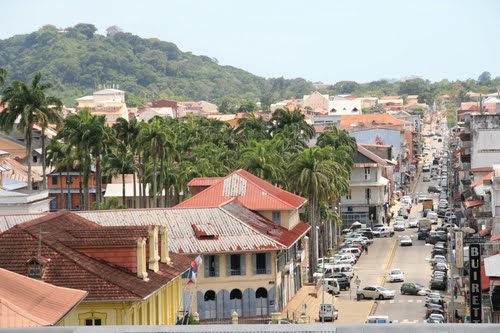
Best areas to learn French: The coastal cities of Cayenne, Kourou and Les Hattes.
Lying along the northeastern Atlantic Ocean of South America, and bordered by Brazil and Suriname, French Guiana is just what the name sounds like: a French-language version of a South American-flavored country.
The population of French Guiana is a rich mixture of Creole, metropolitan French, Surinamese, Brazilians, South Asians and Chinese, among others. Given the melting pot that French Guiana is, the French spoken there can vary, but generally takes on traits of the Creole language, with strong vowel sounds.
The diversity found in French Guiana combined with the celebratory ways of the Guyanese makes learning French with all of your senses fabulously enjoyable.
2. Guadeloupe

Best areas to learn French : Les Abymes, Pointe-à-Pitre and Sainte-Anne on the northeastern wing of the island, and Petit-Bourg on the lesser-populated southeast wing of the island.
A small set of islands located in the Caribbean Sea, Guadeloupe’s tropical climate makes it (along with Martinique) a classic vacation destination for metropolitan French. As a result, the island maintains fairly efficient infrastructure in the largest cities of Les Abymes/Pointe-à-Pitre.
Guadeloupe is integral in French trade, as most of the bananes (bananas) and canne à sucre (sugarcane) grown on the island are exported to metropolitan France. Learning French in Guadeloupe, among the largely Creole population, comes with all the benefits of island life.
The sense of time in Guadeloupe differs greatly from that of metropolitan France, and your language development is all the better for it. A sip of local rhum (rum) certainly helps French roll off the tongue with ease…
3. Martinique
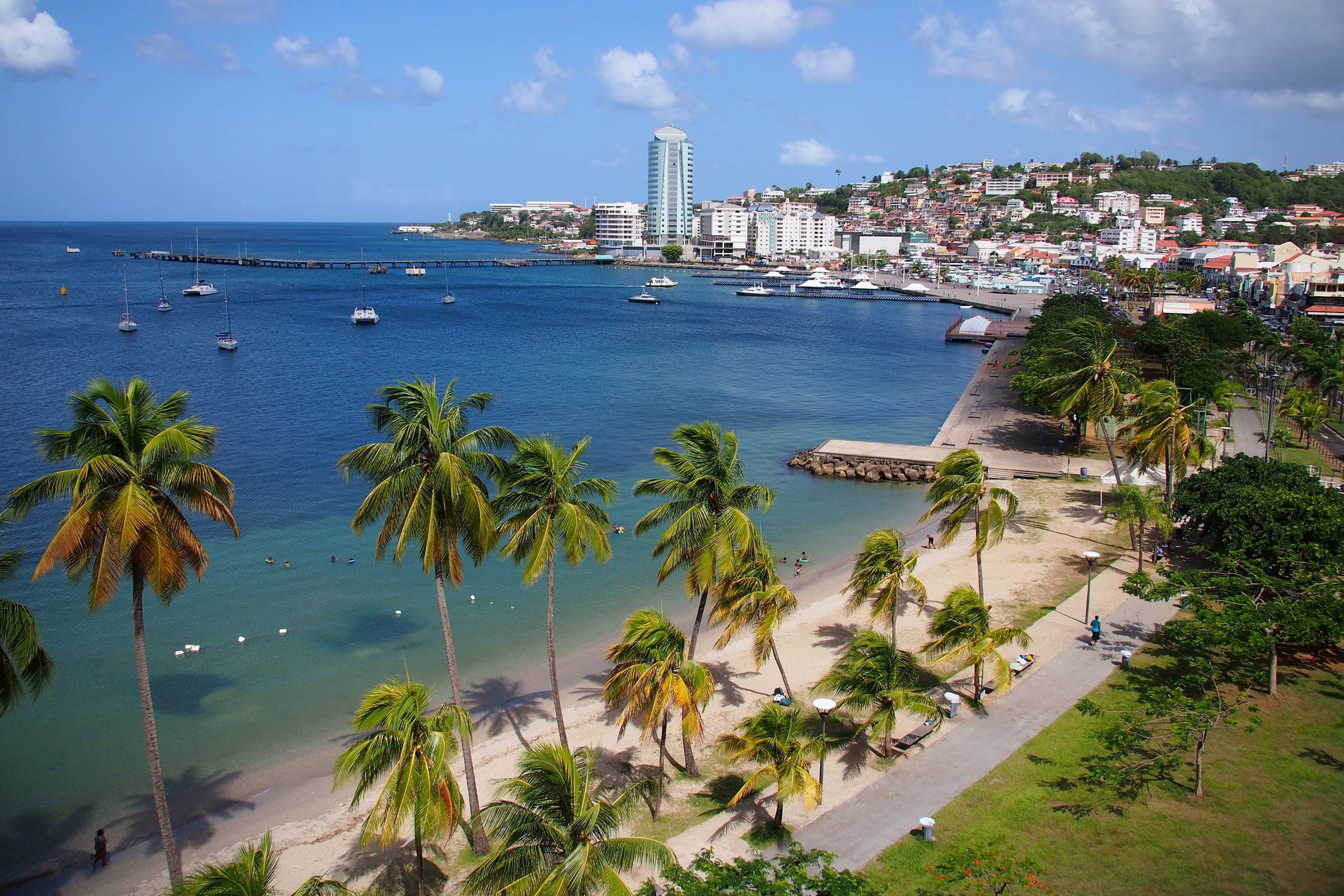
Best areas to learn French : Fort-de-France Bay, Le Lamentin and all metropolitan areas.
Located to the southeast of Guadeloupe, in the Lesser Antilles, Martinique offers perks similar to its French DOM neighbor. Smaller but more densely populated than Guadeloupe, Martinique’s rich volcanic soil is prime for growing tropical crops both for export and for local consumption.
Like in Guadeloupe, Antillean Creole is widely spoken in Martinique, and the accent and language spoken here is sometimes a fun French-Creole fusion.
Learning French in an island environment means that the French is less business-centered and more social, so sunny, green Martinique is a charming place to take advantage of this opportunity!
A Francophone country is any country that speaks French as one of the official (or primary) languages.
The presence of the French language in non-European Francophone countries especially is a direct result of French colonization and expansion that began in the 16th century.
French remains an officially recognized language of the following countries, making them optimal for learning French hors de France (outside of France).
4. Senegal
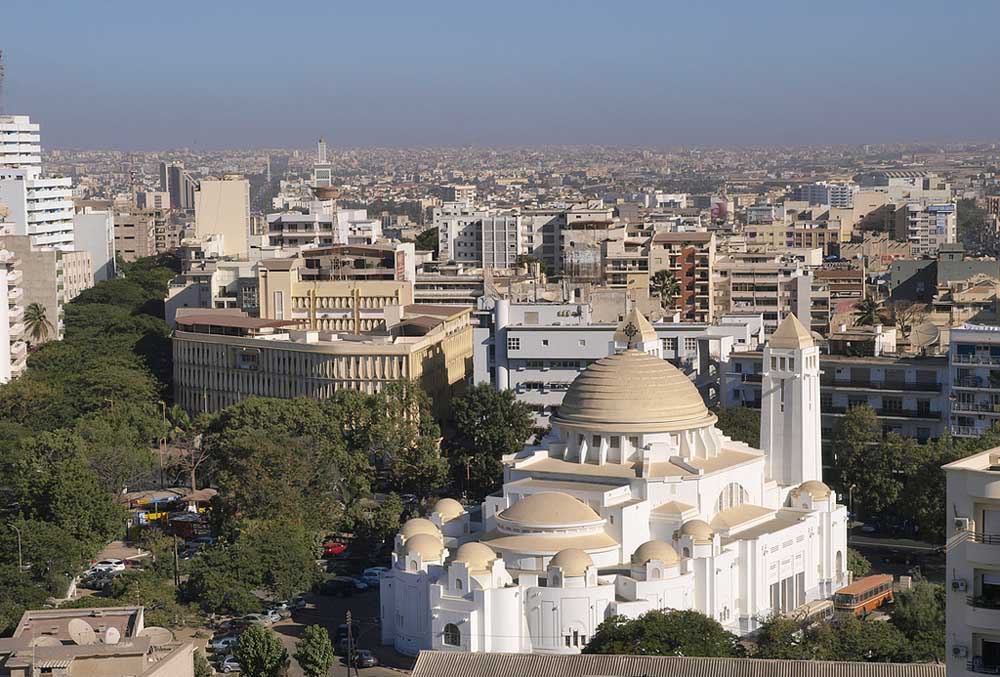
Best areas to learn French : Dakar, Touba, Thiès, St. Louis (all with French-speaking universities).
The city of Dakar in Senegal is the westernmost city on the African continent. Both literally and metaphorically, Dakar is a hub of activity and cultural richness. Up until 1960, Senegal was a French colony, and while French is the official language, Wolof and Arabic are equally as common.
The city of Dakar is bursting with active arts and music scenes, delectable varieties of African-fusion dishes, and a population always eager to share food, song or words.
French flair is very much alive in the French language of Senegal, but French spoken in Senegal is a bit slower than any French you’ll hear in mainland Europe. The accent is light but reflects the rhythmic influence of Wolof , the local dialect.
5. Madagascar

Best areas to learn French : The capital city of Antananarivo, Diego in the north, Toliara on the southwest coast and the popular tourist destination island of Nosy Be.
Just off the southeastern coast of South Africa, the island country of Madagascar is sometimes called the “8th continent.”
Dubbed so because of its unique biodiversity and high number of indigenous species, Madagascar is an incredible place to learn French while exploring the variety of plant and animal species on the island.
Although local dialects and Malagasy are spoken in smaller villages, French is officially recognized. However, it is much harder to come by and can be practically non-existent in isolated areas.
In larger cities, French is used in business and tourism and is a sign of formal education.
6. Morocco
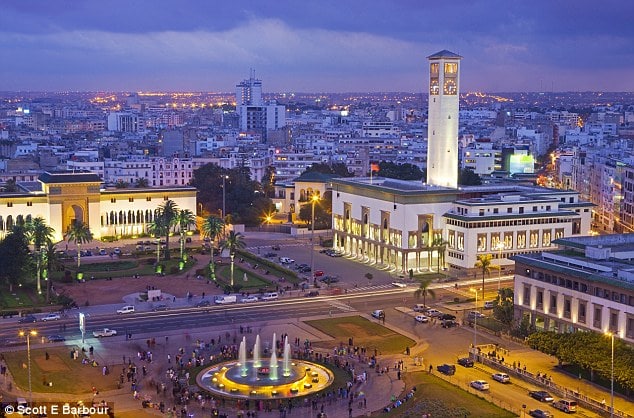
Best areas to learn French : Rabat, Casablanca, Marrakesh.
Located just south of Spain in the northwest corner of Northern Africa, Morocco became a French protectorate in 1912 and regained independence shortly after in 1956.
As an Islamic country, the culture and lifestyle in Morocco centers around religious practice and shared community meals. The capital city of Rabat and other larger urban centers like Marrakesh and Tangiers offer deep and diverse cultural learning.
Although Arabic is spoken by nearly two-thirds of the population, French is second most common and you’ll have ample time to practice around a perfectly seasoned tagine ( a traditional stew-like meal cooked in an earthenware dish).
Like in Madagascar, French is more difficult to find in rural areas where educational opportunities are fewer and business does not necessarily require French or English.

Best areas to learn French : Montreal, Quebec City and the province of New Brunswick are all more or less French-English bilingual.
O Canada! Its proximity to the lower 48 states can make practicing French here a bit more economical for Canadians and Americans. One is more likely to hear French in the more southeastern cities of Montreal or Quebec City.
There is, without a doubt, a strong French Canadian accent ; some find it a bit more sharp or nasal compared to that of metropolitan French or slower island or African French.
Canada is a great place to learn French if you’re not as eager for more remote learning in a less-developed country.
8. Belgium

Best areas to learn French : Brussels, Liège and pretty much anywhere south of these two cities.
Tucked to the northeast of France, Belgium is naturally a country in which the French language transcends borders.
Belgium is made up of a French-speaking population primarily found in the south and Flemish/Dutch speakers residing more in the north and northeastern part of the country.
The capital city of Brussels is mainly French-speaking, and offers opportunities to experience a bit of both language cultures, perhaps over a gaufre au chocolat (waffle with chocolate) or moules frites (mussels with fries).
9. Luxembourg
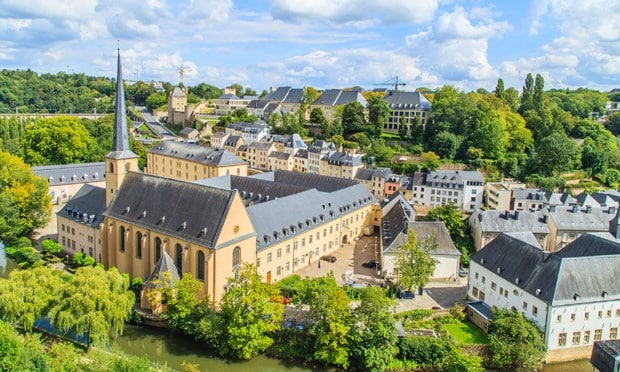
Best areas to learn French : The capital of Luxembourg City or Esch-sur-Alzette in the southwest.
Landlocked between France, Belgium and Germany, Luxembourg straddles the line between the Germanic and Romance language communities of Europe.
The three main languages of this small country with great national pride are Luxembourgish, German and French.
German and French are the main languages of administration and business, as the country has a bustling banking and finance sector. As a result of the coexisting French and German languages, the French accent in Luxembourg has a twinge of German intonation and throaty-ness.
Be warned: Luxembourg is a more expensive place to live and learn French (although speech is free!).
10. Switzerland
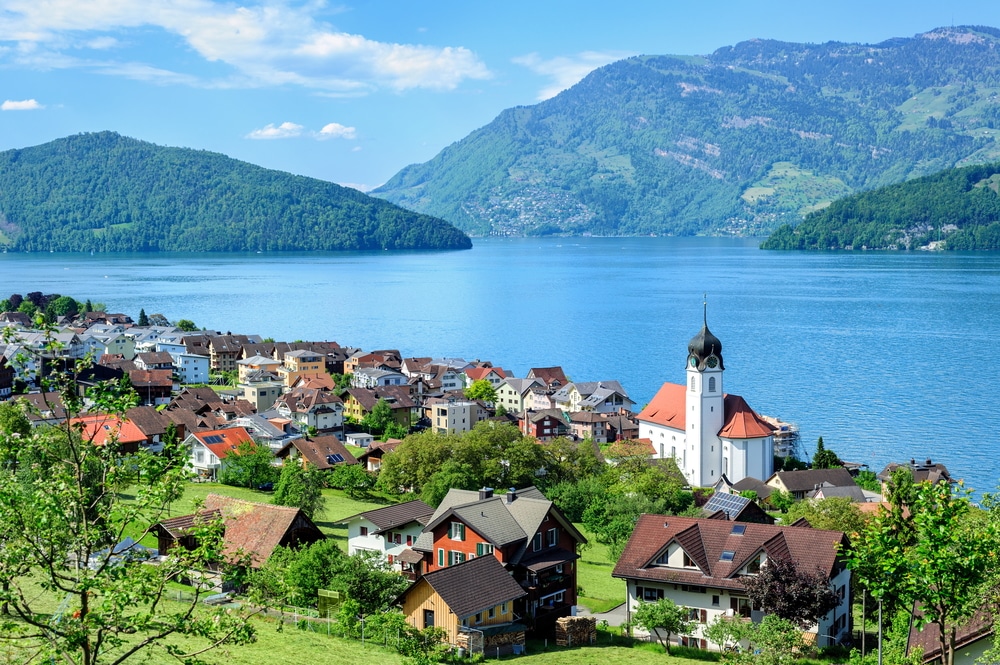
Best areas to learn French : Geneva, Lausanne (on the French border) and Bern.
Landlocked to the southeast of Luxembourg, Switzerland boasts the majestic Alps, idyllic rural pastures and serene alpine lakes.
Although these are all stereotypical Swiss images, most of the population lives in cities, such as Geneva, Bern or Zurich, that are known for being wealthy centers of commerce.
Due to its location, one can find French, German and Italian all spoken in Switzerland. Like Luxembourg, though, the cost of living is higher here, and French generally fills a more business-oriented role.
Watch out for a different number system in Swiss French !
FluentU takes real-world videos—like music videos, movie trailers, news and inspiring talks—and turns them into personalized language learning lessons .
FluentU has a wide variety of great content, like interviews and web series, as you can see here:

FluentU brings native videos within reach with interactive subtitles.
You can tap on any word to look it up instantly. Every definition has examples that have been written to help you understand how the word is used.

For example, if you tap on the word "crois," you'll see this:

Practice and reinforce all the vocabulary you've learned in a given video with FluentU's adaptive quizzes. Swipe left or right to see more examples for the word you’re learning and play the mini-games found in the dynamic flashcards, like "fill in the blank."

As you study, FluentU tracks the vocabulary that you’re learning and uses this information to give you a 100% personalized experience.
It gives you extra practice with difficult words—and reminds you when it’s time to review what you’ve learned.
Start using the FluentU website on your computer or tablet or, better yet, download the FluentU app from the iTunes or Google Play store. Click here to take advantage of our current sale! (Expires at the end of this month.)
The French language reaches beyond France
Although the language of French is native to France (beginning with Latin roots), it’s also the main language spoken in many other places.
During years of sea exploration, colonization and the slave trade, there was much interaction between France and other countries and cultures.
As a result, ideas and cultural aspects such as religion, values and language were also moving from continent to continent. The French language, therefore, reached parts of the Caribbean and South America, Africa, North America and other island cultures. French landed and stuck in these places.
The French language is adaptable and diverse
Over time, the French language has adapted to the various places in which it was introduced. Obviously, French had not previously existed in the cultures to which it was brought.
Local folks had to adapt the language to fit their culture and lifestyles, meaning that new pronunciation, vocabulary, slang and sensory descriptors emerged. The French language was molded, little by little, to fit its new environments.
You’ll experience diverse cultures and climates
Being willing to immerse yourself in French, therefore, opens up the possibility of experiencing climates and cultures different from what you may find in France itself.
The mélange (mixture) of local culture and language with French culture and language in Francophone countries outside of France offers an incredibly rich learning environment.
While the French language is the main means of communicating in the places we’ve had a look at, the local climate and culture (which in some cases existed there before the French language did) provide an alternative perspective and a deeper understanding of French history, as well.
You’ll become a “well-rounded” learner
The experience you’ll gain learning French outside of France will indubitably make you a more adaptable and seasoned French learner. Learning French in a place other than France can equip you with the ability to discuss French-language culture, politics, history, geography and unique speech patterns based on your personal experiences.
It will offer you more perspective and broaden your scope for understanding how the French language works in context, and how context affects the development of language.
Want to expand your French-language experience to Martinique or French Guiana? Feel more drawn to speak with a bit of a Canadian twist? Eager to spice up your French-speaking palate in Morocco and Senegal? Hoping to boost your business French in Switzerland or Luxembourg? There’s more to France than just metropolitan France, and there’s certainly more to French than “proper” Parisian French.
Here are some sites you can check out for various study abroad options in some of the places we talked about in this post (and some Francophone countries not listed here, too!):
- CIEE.org : This study abroad site organizes study abroad opportunities during the summer and during the academic year in Belgium, Senegal, Morocco (and France).
- SIT Language Study : This study abroad organization makes it easy to travel in Francophone Africa, running summer and academic year programs in Madagascar, Cameroon and Switzerland, as well as Tunisia.
- StudyAbroad.com : This site will show you French study abroad opportunities in Canada, Senegal and other countries (including France, if you’re still stuck on being in France!).
- GoAbroad.com : This site compiles a list of Francophone study abroad/teaching/volunteer opportunities including (but not limited to) Monaco, Switzerland, Morocco and Canada.
The best place for your French learning is out there, and learning French is more than just speaking the language.
It’s one thing to talk the French talk, but you should enjoy walking the walk, too.
If you can’t get down with the culture(s) whose language you’re learning, you’ll never feel inspired to get out and practice speaking.
So, go out, explore and learn!
FluentU has a wide variety of great content, like interviews, documentary excerpts and web series, as you can see here:
FluentU brings native French videos with reach. With interactive captions, you can tap on any word to see an image, definition and useful examples.

Practice and reinforce all the vocabulary you've learned in a given video with learn mode. Swipe left or right to see more examples for the word you’re learning, and play the mini-games found in our dynamic flashcards, like "fill in the blank."
All throughout, FluentU tracks the vocabulary that you’re learning and uses this information to give you a totally personalized experience. It gives you extra practice with difficult words—and reminds you when it’s time to review what you’ve learned.
Enter your e-mail address to get your free PDF!
We hate SPAM and promise to keep your email address safe


25 places other than France where speaking French is helpful
Posted: January 8, 2024 | Last updated: January 8, 2024

Speaking another language is always helpful, especially if you love to travel. And French, commonly thought of as one of the most beautiful in the world, is also more useful than you might realize. Here are 25 destinations outside of France where you can put your French language skills to good use!
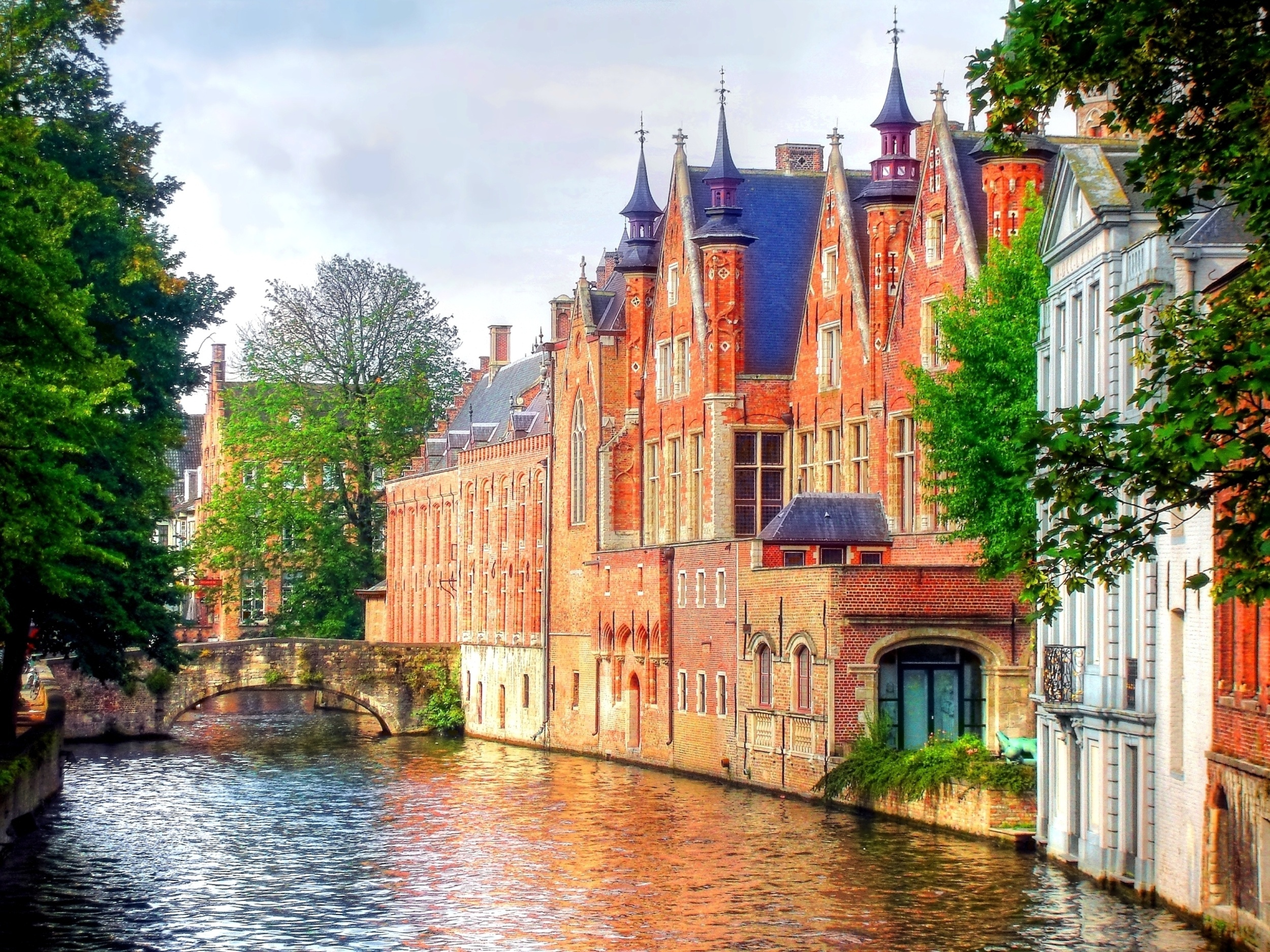
Home to delicious beer, chocolate, waffles, and fries (no, they actually didn’t originate in France), Belgium is also a French-speaking country. The language is one of three officially spoken in the country; the other two are Dutch and German. French is mostly spoken in the capital, Brussels, and in the south of the country.
You may also like: 15 weird & wonderful roadside attractions in the United States
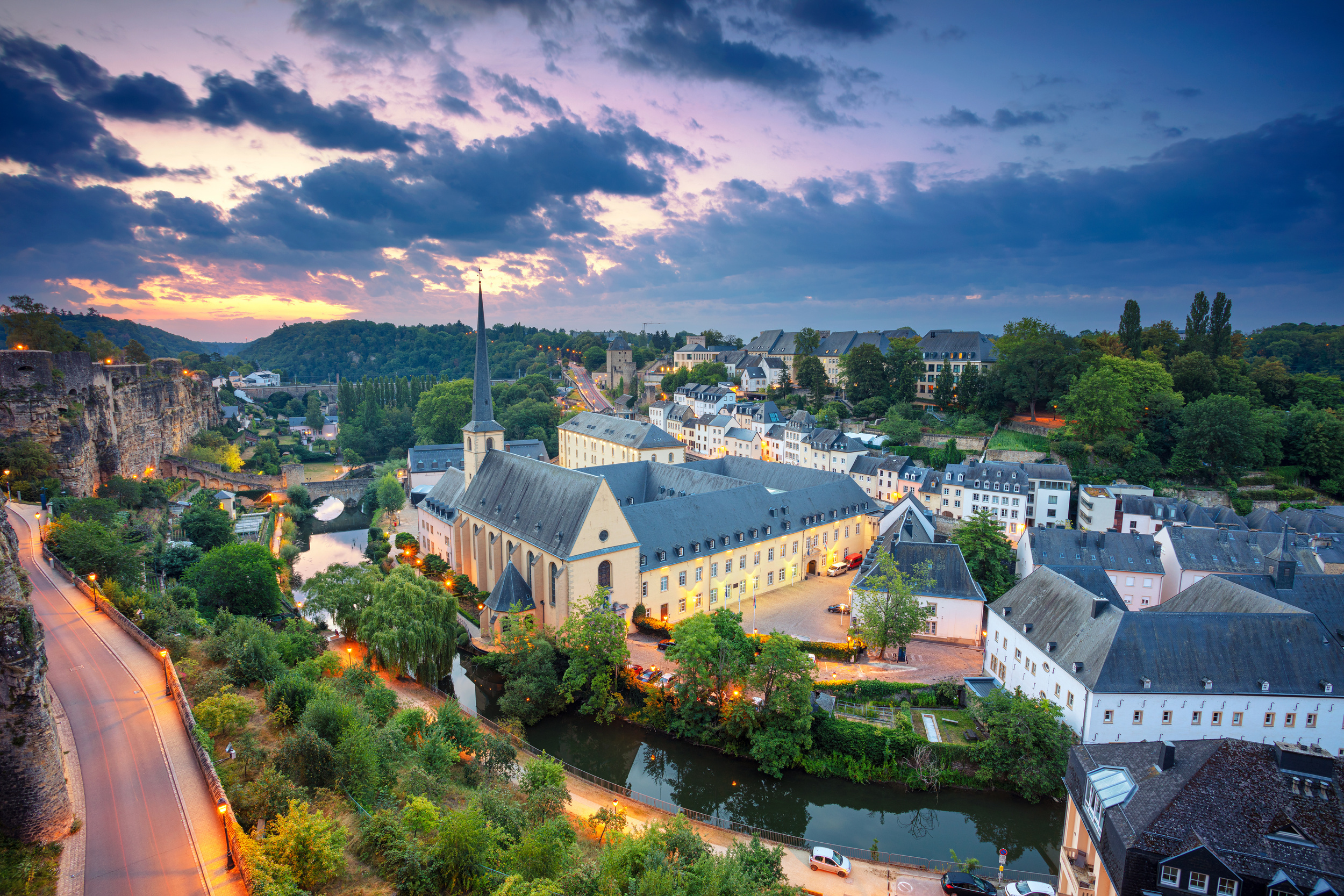
Another multilingual state that borders France, the Grand Duchy has French, German, and Luxembourgish as official languages. However, French is one most commonly used on signs and in written communication in the country. You’ll also find it most helpful for small talk and chatting with residents.
Follow us on MSN to see more of our exclusive lifestyle content.
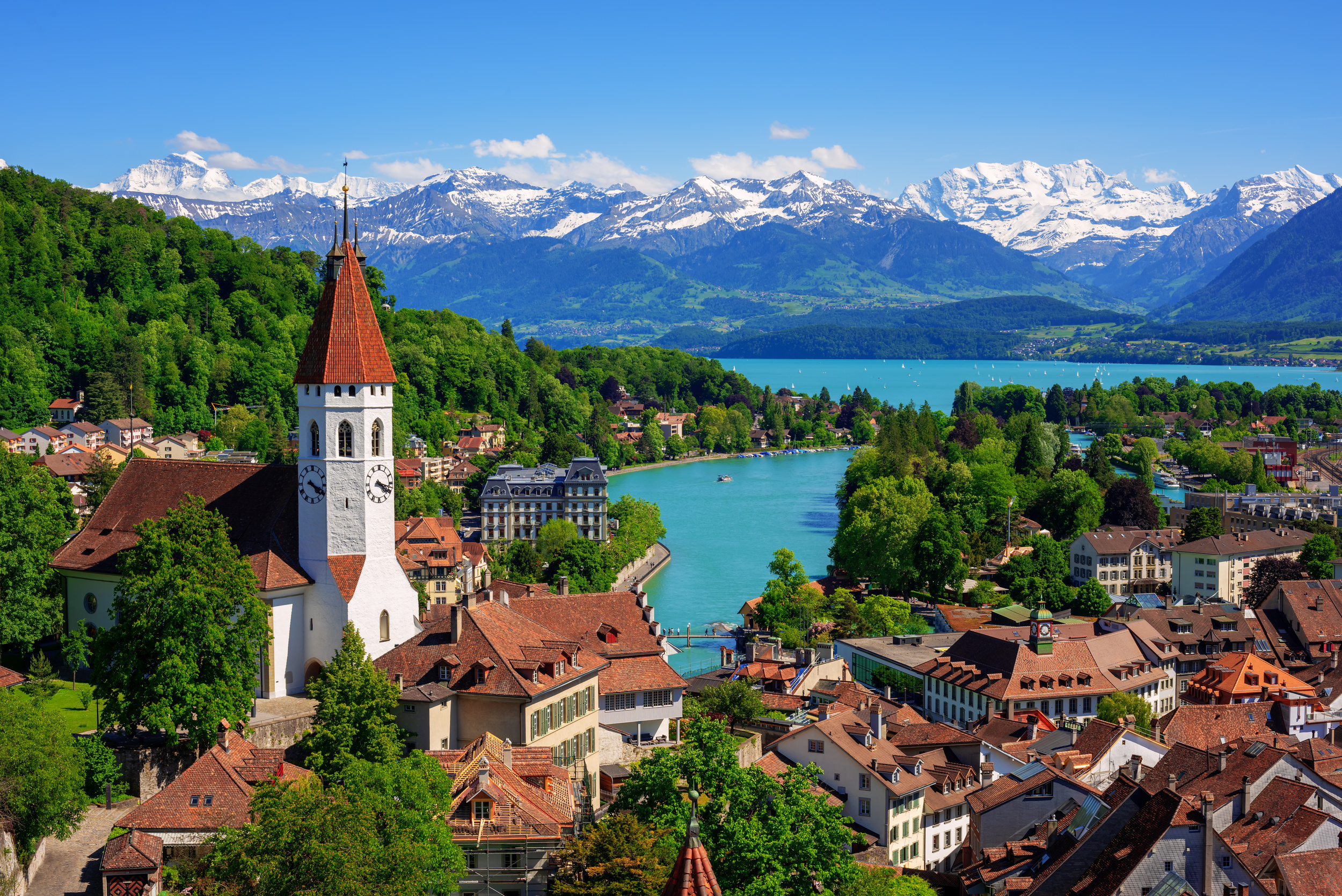
Switzerland
Yet another European country with French as one of the official languages (the others are German, Italian, and Rhaeto-Romance). You’ll find French most useful in Geneva and the surrounding area, although it’s used throughout Switzerland.
You may also like: Layered dips you can make that will feed the whole team
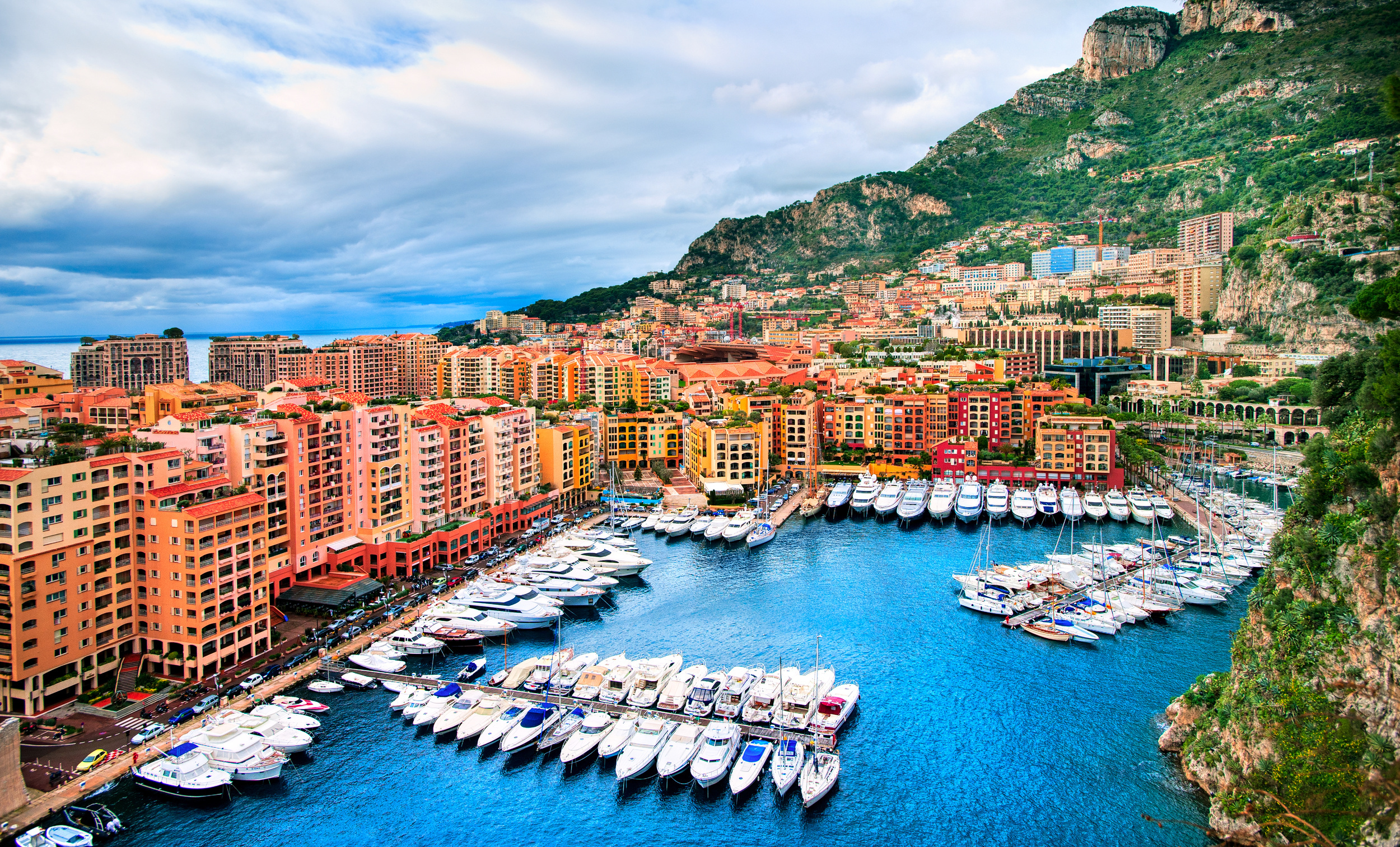
Many people make the mistake of assuming that this tiny state is a part of France. And while Monaco is surrounded by its’ much larger neighbor and uses the French language, it is a sovereign city-state with a monarchy. There is also a Monégasque language that has official status.
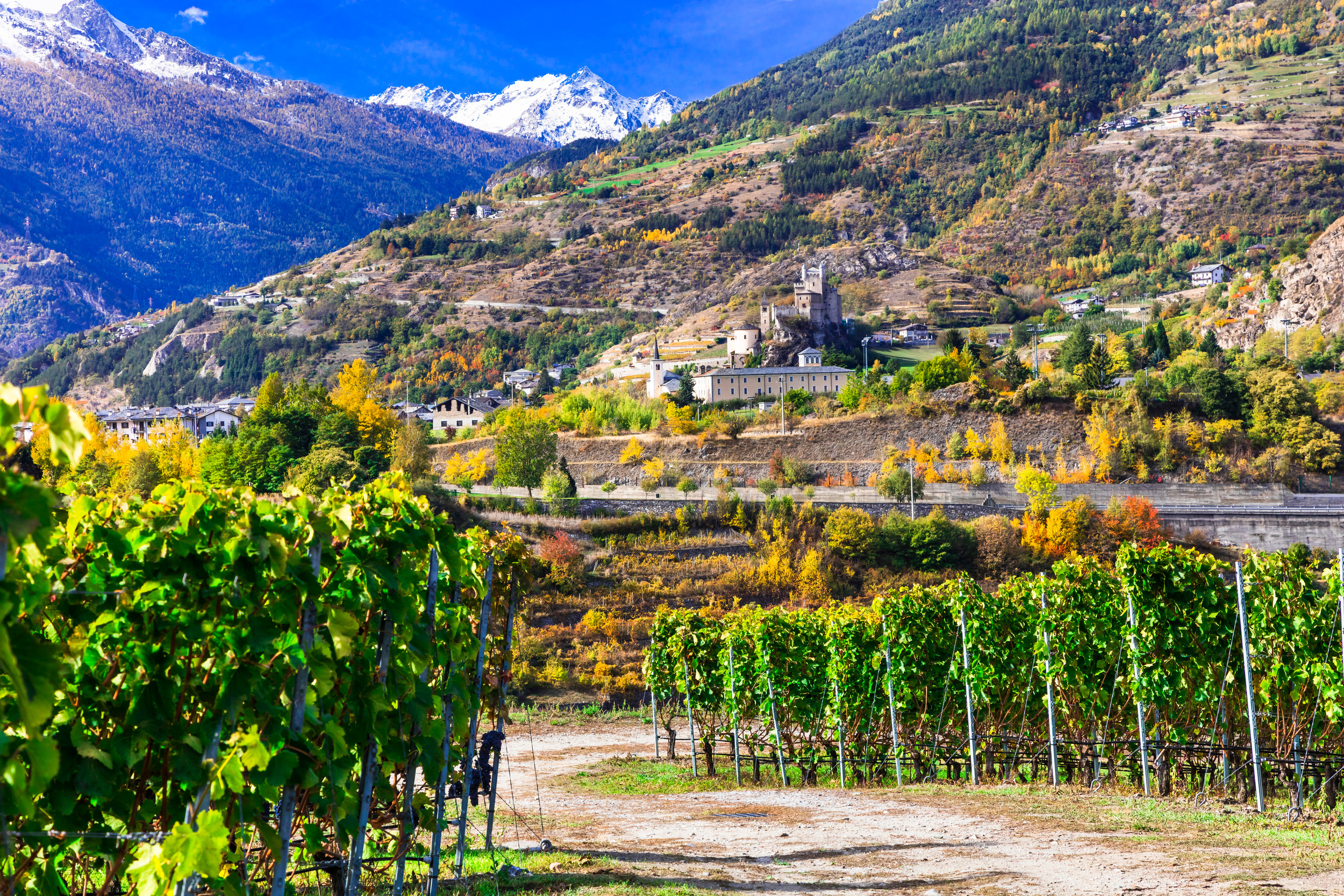
Aosta Valley
This region of Italy is located in the northwest of the country, near France. Latin was replaced by French as the official language after the fall of the Roman Empire and then, in the 19th century, was replaced with Italian. Today, the region is bilingual, and you’ll see French and Italian written on road signs and hear the two spoken by locals.
You may also like: 13 foods & drinks that cause bad breath and 13 that combat it
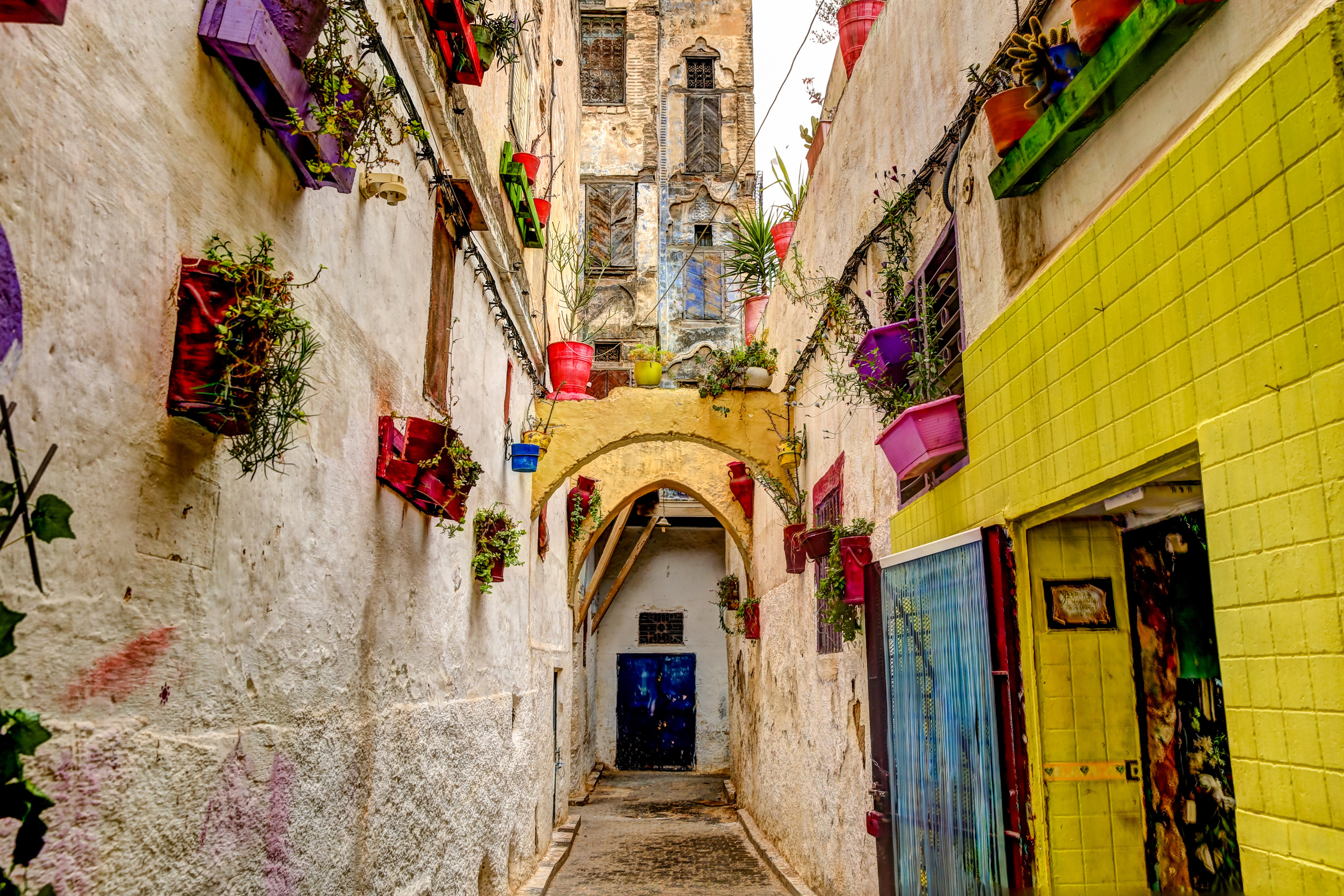
The French Empire had a strong presence in North Africa, and thus many nations in the region still use French as an official language. Morocco is one of these, and French is widespread along with Arabic and various Berber dialects. As a visitor, you’ll find it extremely useful when speaking to locals or reading signs and menus.

Algeria’s official languages are Arabic and Berber, but French is also commonly understood. While not as widely used as in neighboring Morocco, it will be your best bet if you don’t speak one of the official languages.
You may also like: 20 ingredients that will make your grilled cheese even better
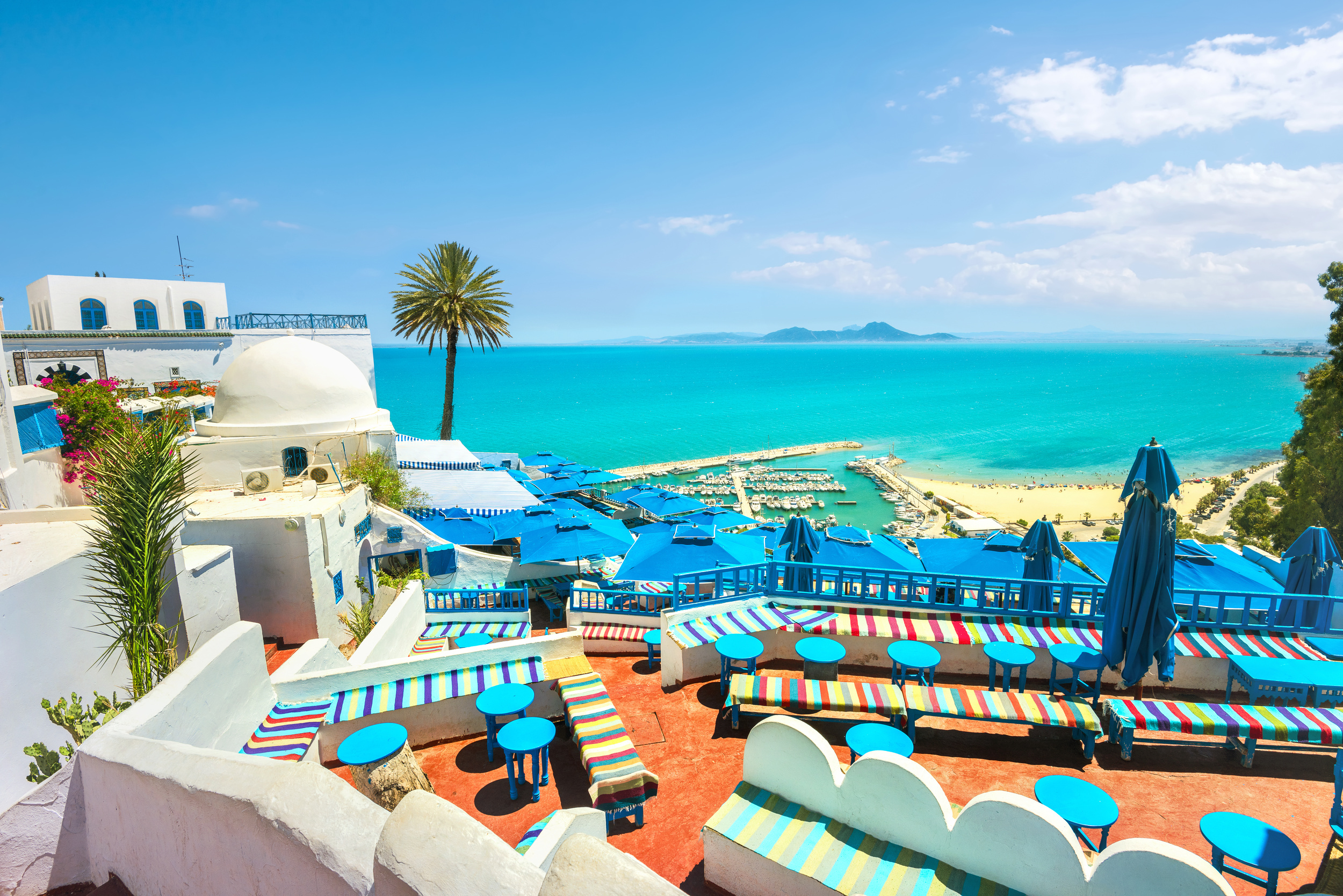
Another former French colonial outpost, the language is used and understood throughout the country in addition to Arabic and Tunisian. It’s estimated over half the population speaks French, and it’s the teaching language of high schools in the country.

Cameroon was a colony of both the UK and France in the early 20th century. So, English and French are spoken in the country. However, French is the most prevalent, with eight of 10 regions considered Francophone. Locals also speak numerous other indigenous languages.
You may also like: 20 beauty and skincare hacks that actually work
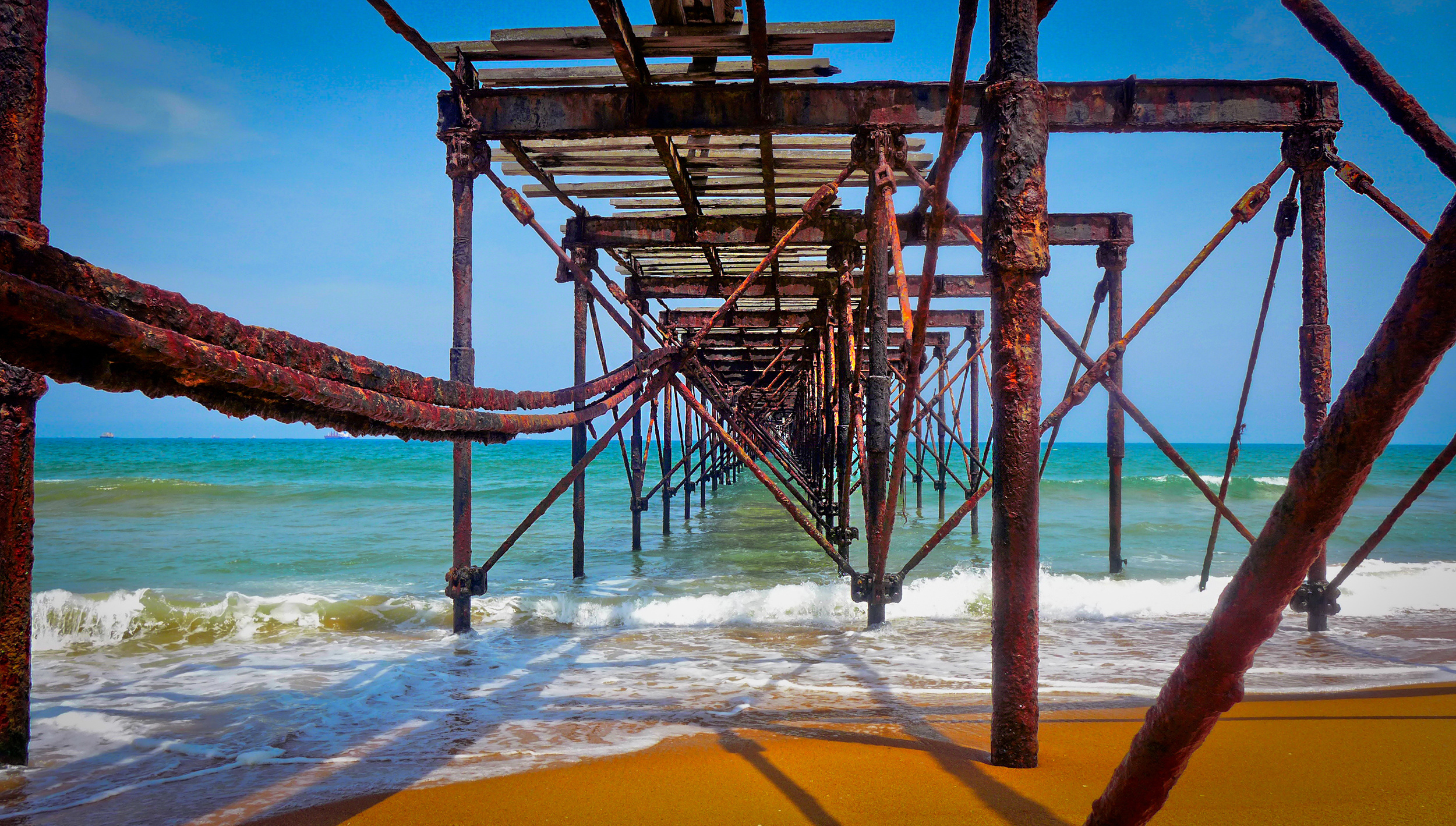
Ivory Coast
Known as “Côte d’Ivoire” in French, this coastal nation uses the old colonial language as the official one. Additionally, numerous indigenous languages also have recognized status in the Ivory Coast.
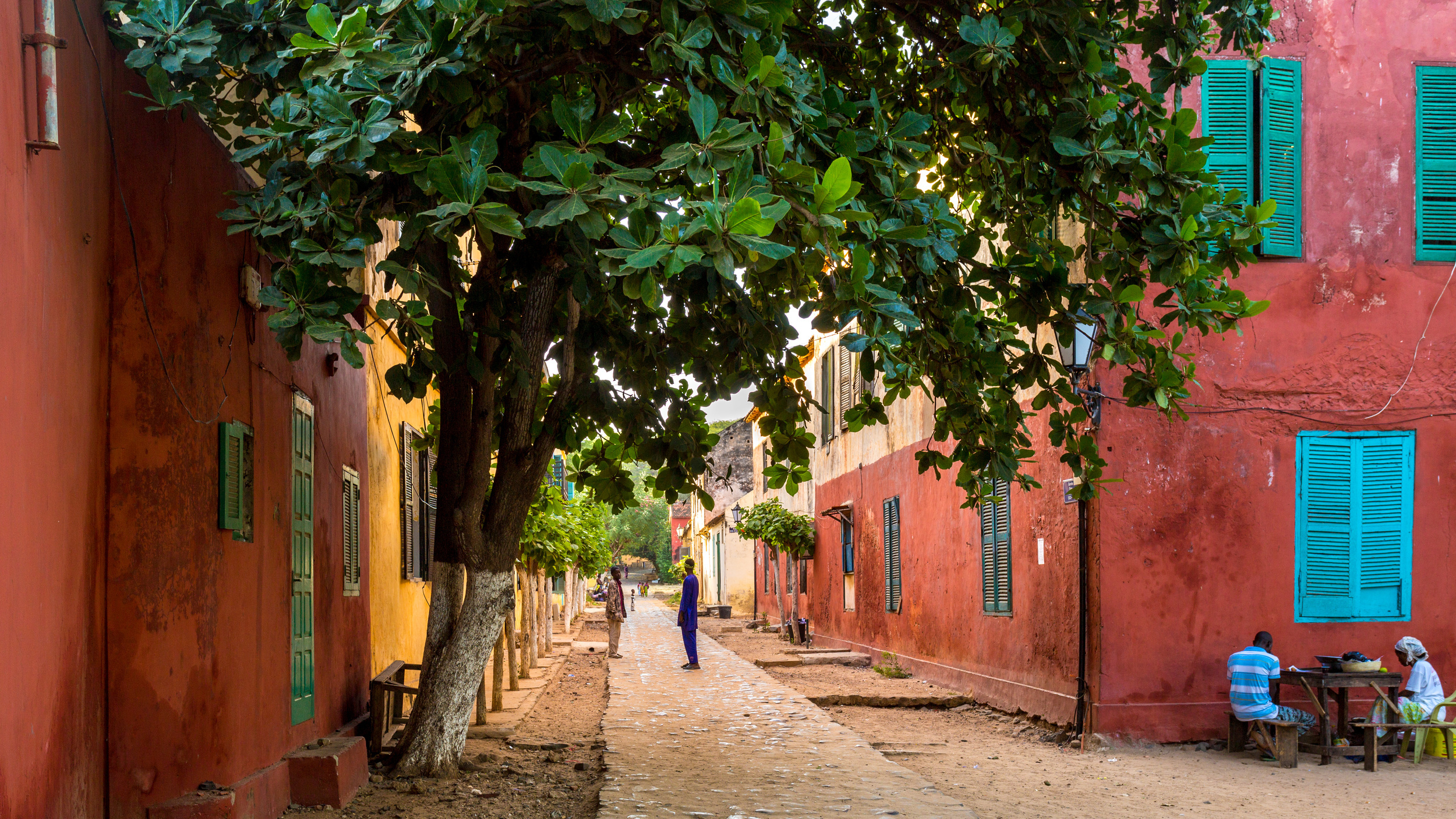
Senegal has six recognized indigenous languages, the most well-known and commonly spoken is Wolof. However, French is still the official language of the country despite Wolof being more widely used and understood.
You may also like: Add these 20 unusual U.S. destinations to your travel bucket list
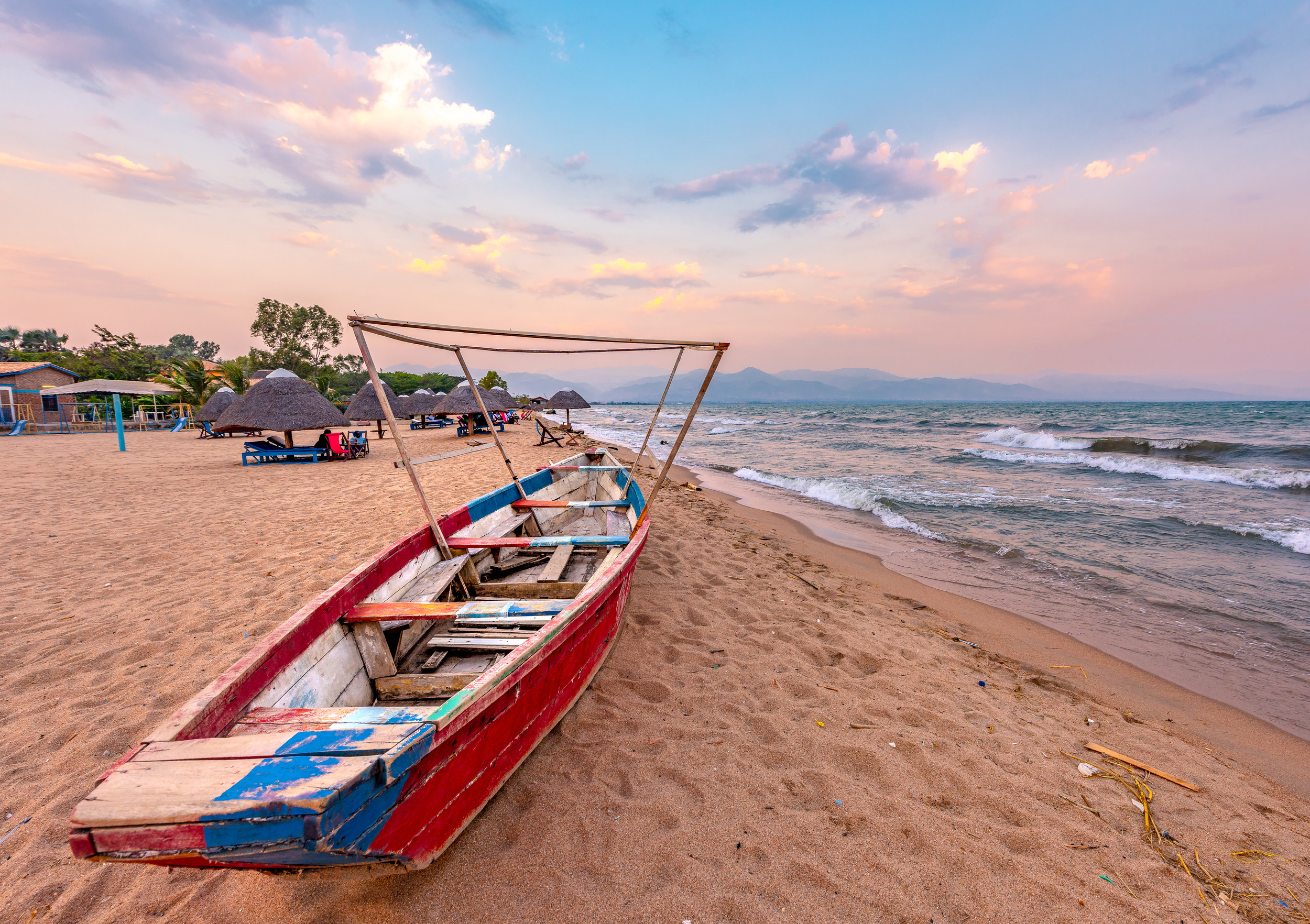
Yet another multilingual former French colony, Burundi has three official languages. In addition to French, Kirundi, and Swahili are recognized by the government. In 2014, English also gained status in the country.
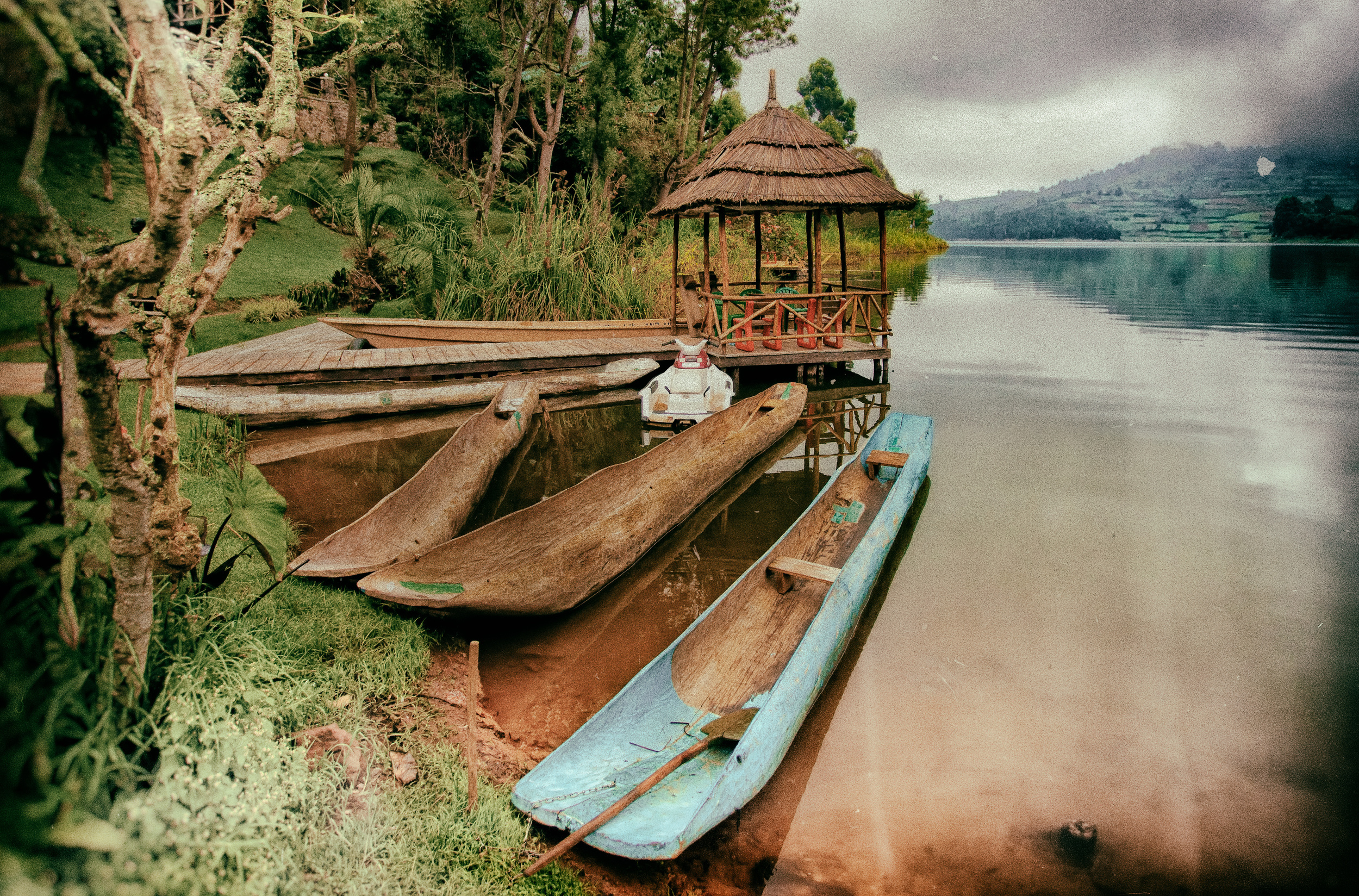
Republic of the Congo
Also known as the Congo or Congo-Brazzaville, it is not to be confused with its neighbor, the Democratic Republic of the Congo. Formerly known as the French Congo, due to colonization, the language is still the official one of use to this day. The local Bantu language, Kituba, Lingala, and numerous other indigenous languages are also widely spoken.
You may also like: 20 cookies you probably never tried before (but should!)
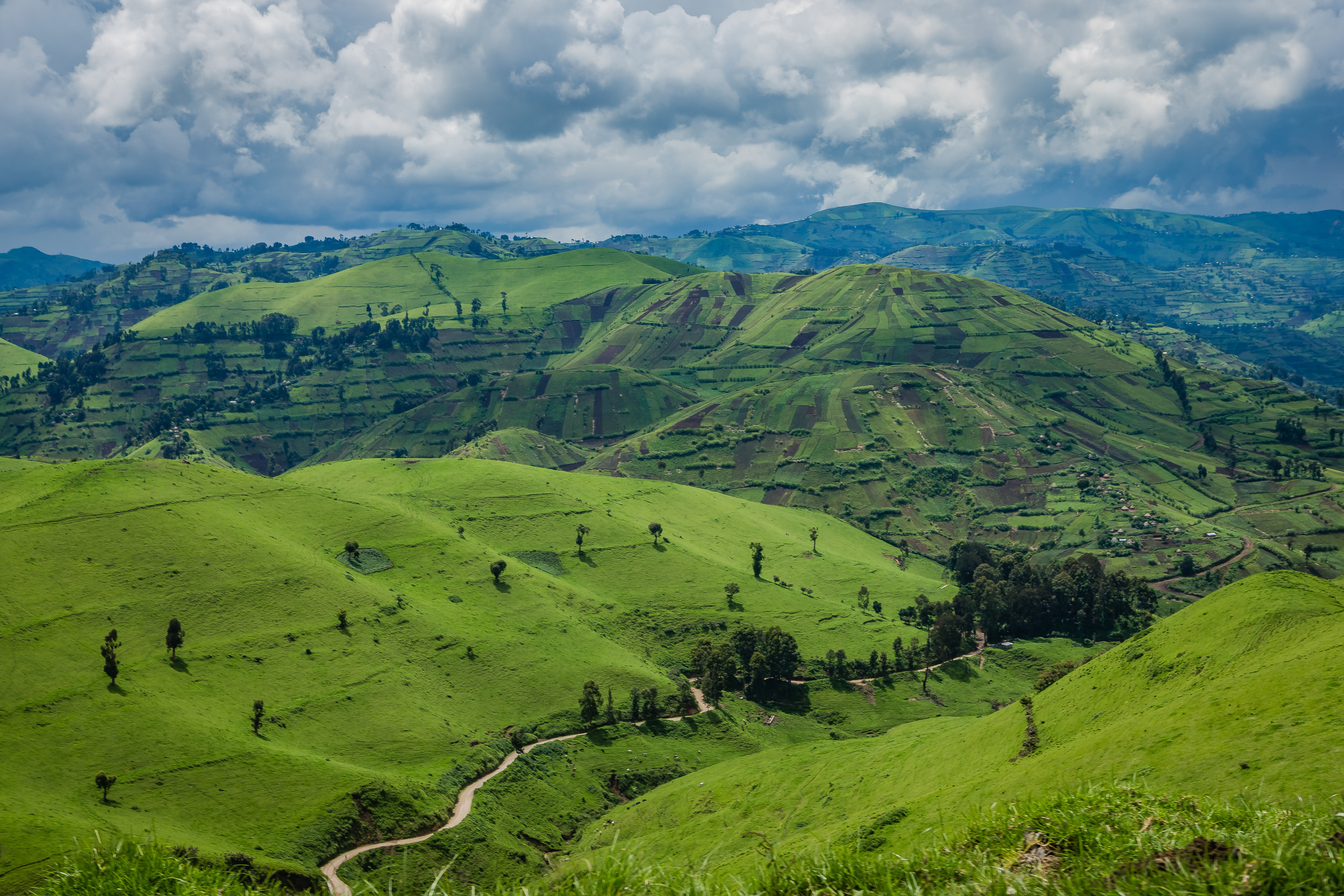
Democratic Republic of the Congo (DRC)
The DRC has four main languages: Kikongo (Kituba), Lingala, Swahili, and Tshiluba. However, as a former Belgian colony, French is still widely used and understood.
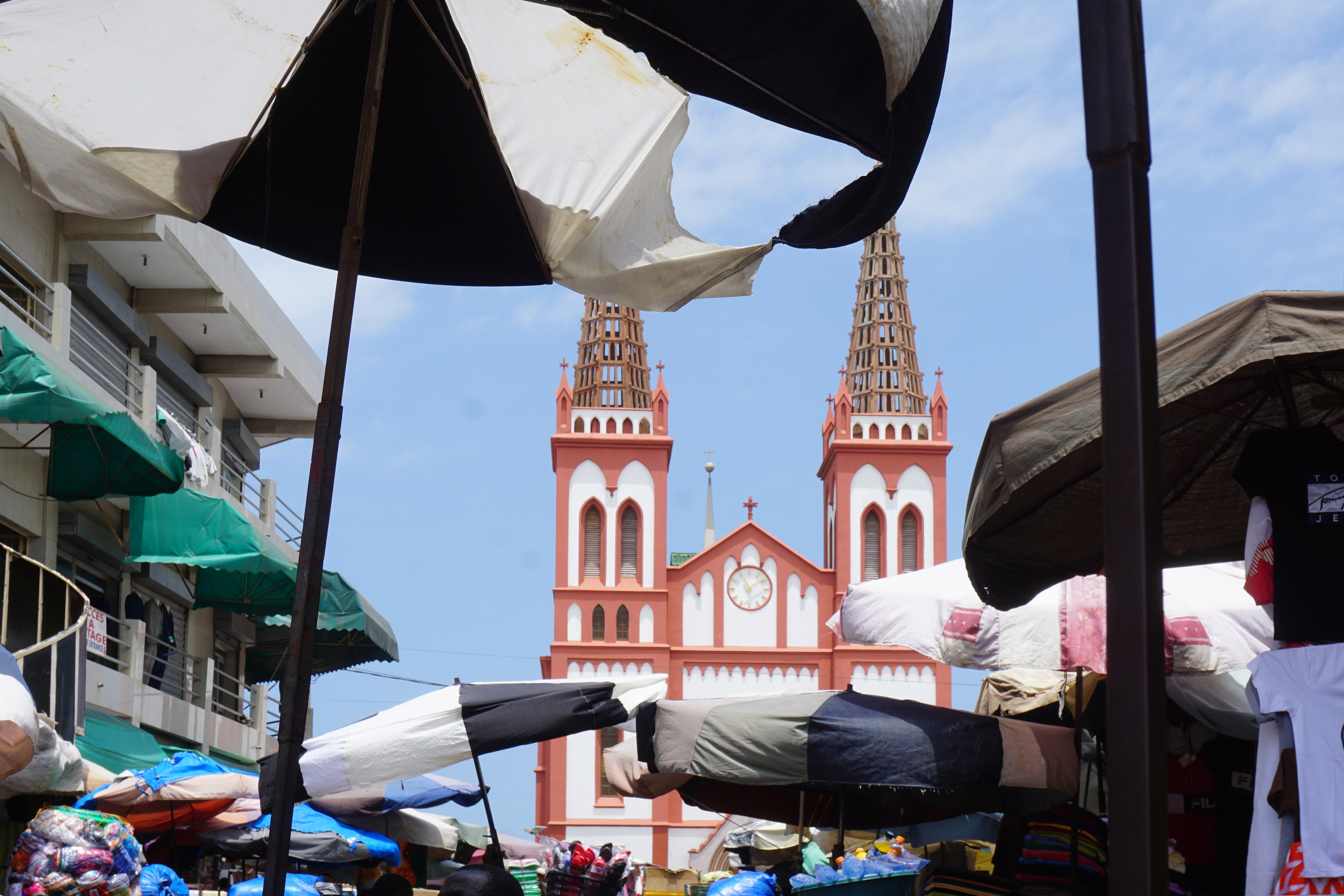
Togo is a very multilingual country, and in addition to the official language, French has over 40 in use throughout the country. Many signs will be in French, and most locals speak some.
You may also like: 25 gameday snacks you can make in a slow cooker

Yet another former French colony, visitors to Mali will find the language very useful in most interactions. Additionally, the country is home to more than 80 other local languages.

The British and French fought over Canada, with the former finally winning out, but the Francophone portion of the population remained influential. So much so that the country has two official languages: English and French, with over 70 indigenous languages in existence. And the province of Québec only has French as the official language (and frequently threatens to secede from Canada). Its neighbor, New Brunswick, is the only officially bilingual province.
You may also like: 20 essential organizing tips for living in small spaces
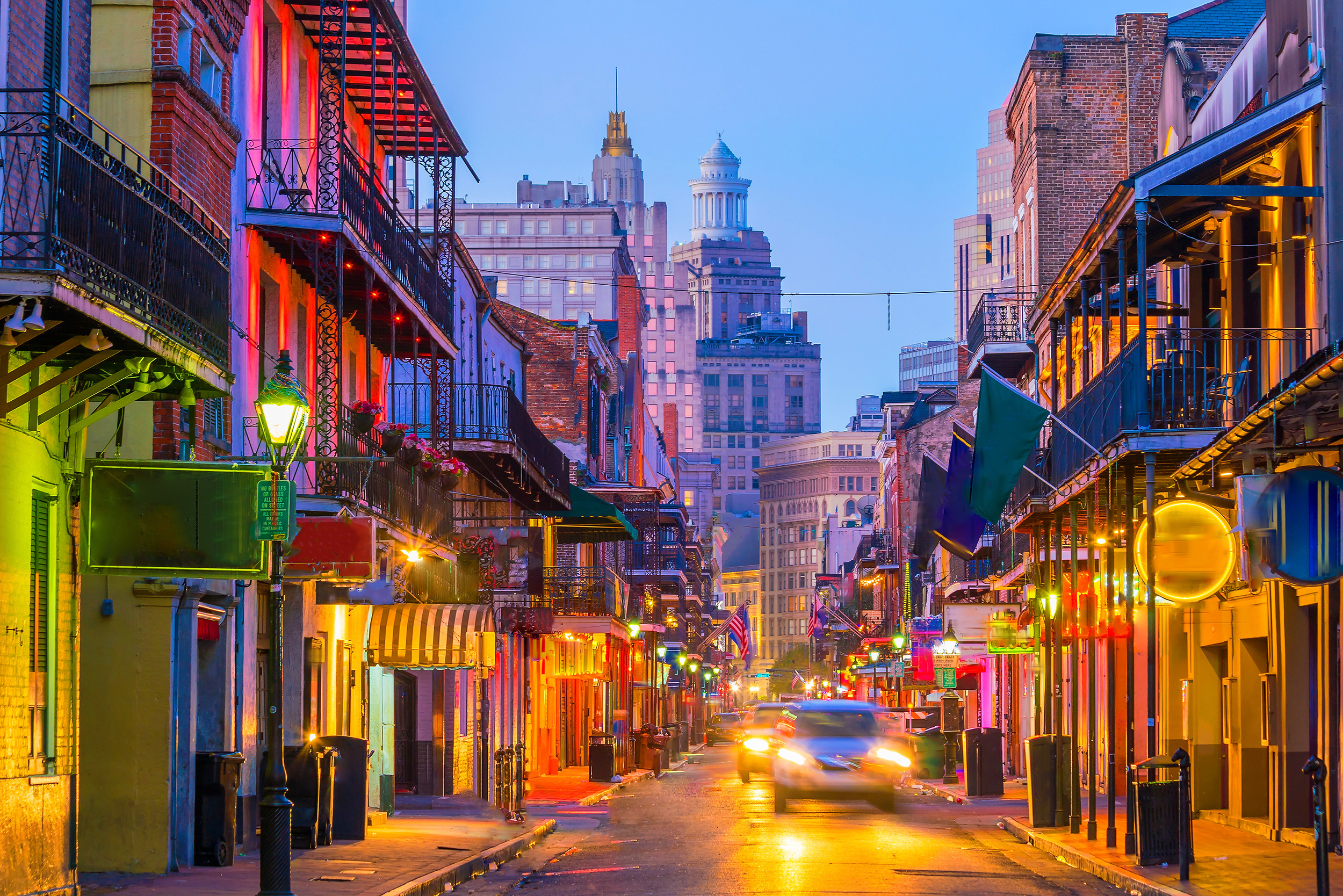
When the U.S. purchased Louisiana territory from the French in 1803, it probably wasn’t considered how long the language would stick around. In the 1960s, efforts were made to revive the language in the state after decades of suppression and Americanization. Now, French is spoken by an estimated 100,000 to 200,000 residents, ranging from traditional and Cajun (Louisiana) French.
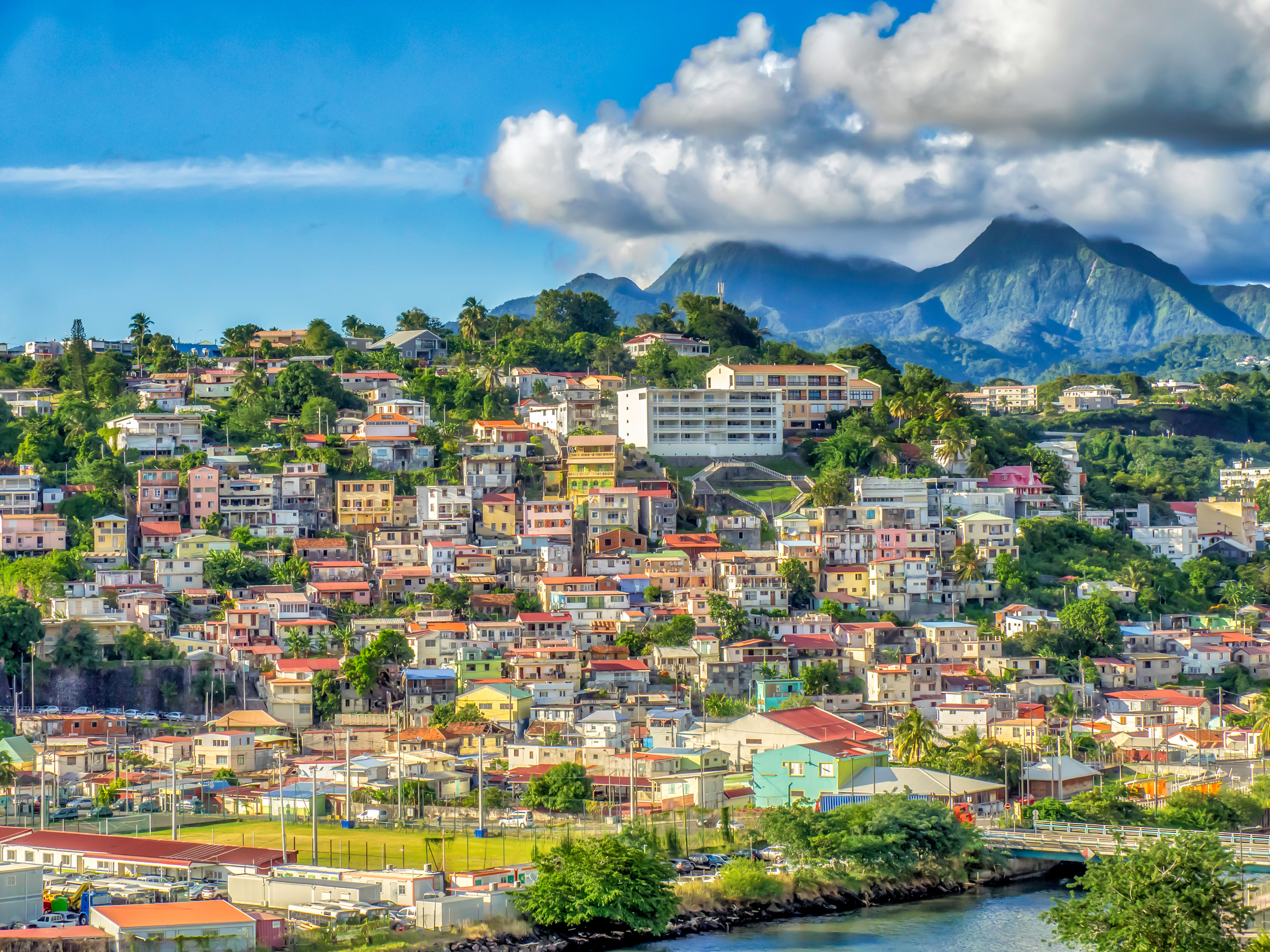
The Spanish colonized this Caribbean island before the Brits and French arrived. Then in 1763, France took over, and in 1943, it became semi-autonomous before gaining its current status as an Overseas Department in 1946. French is the official language, and visitors will find it helpful to know basic phrases, but Martinique Creole is unofficially the local language of communication.
You may also like: 15 quick and easy gameday appetizers
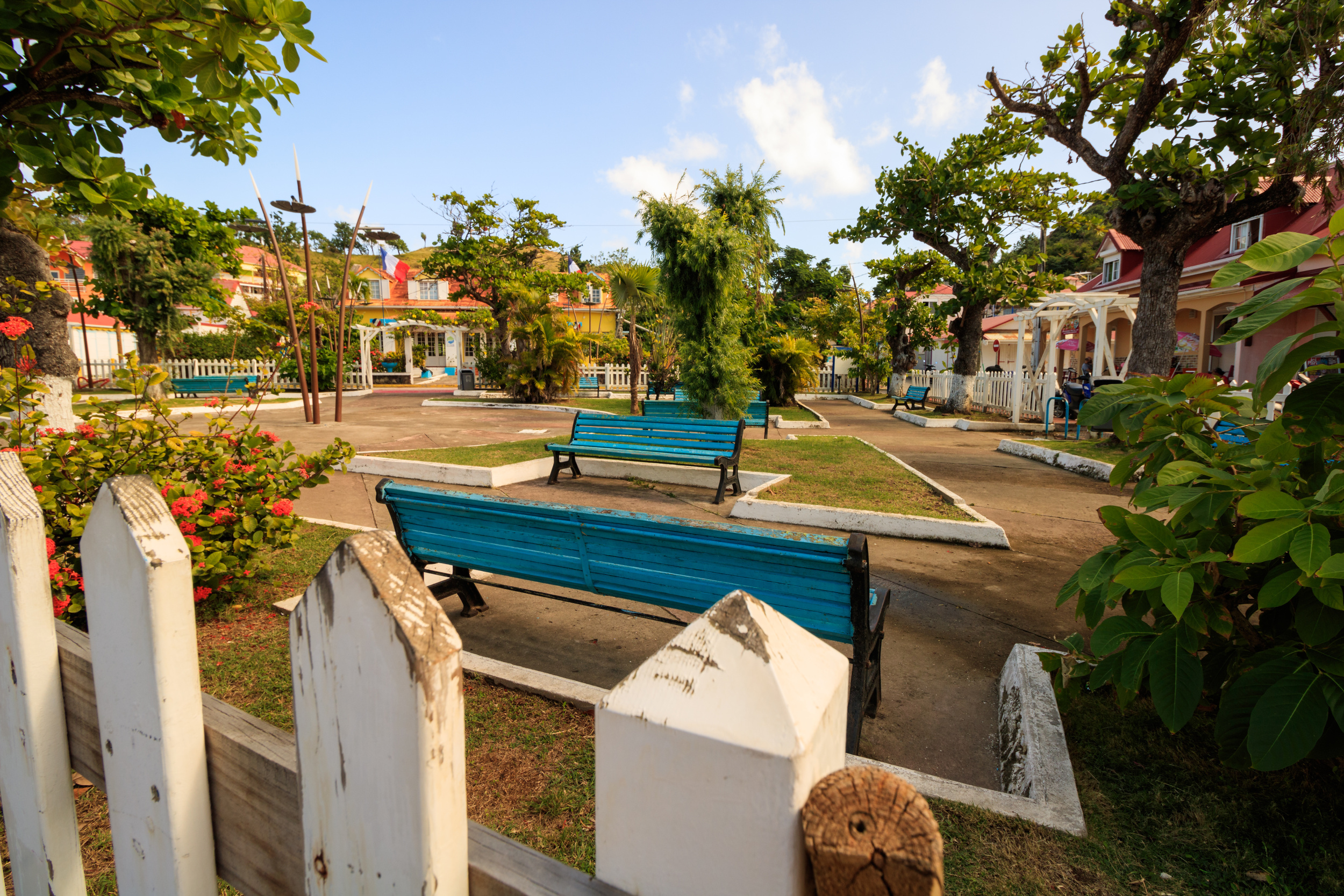
Another current French Overseas Department first colonized by the Spanish, Guadalupe has French as its official language, but like Martinique, Creole is widely used by locals.
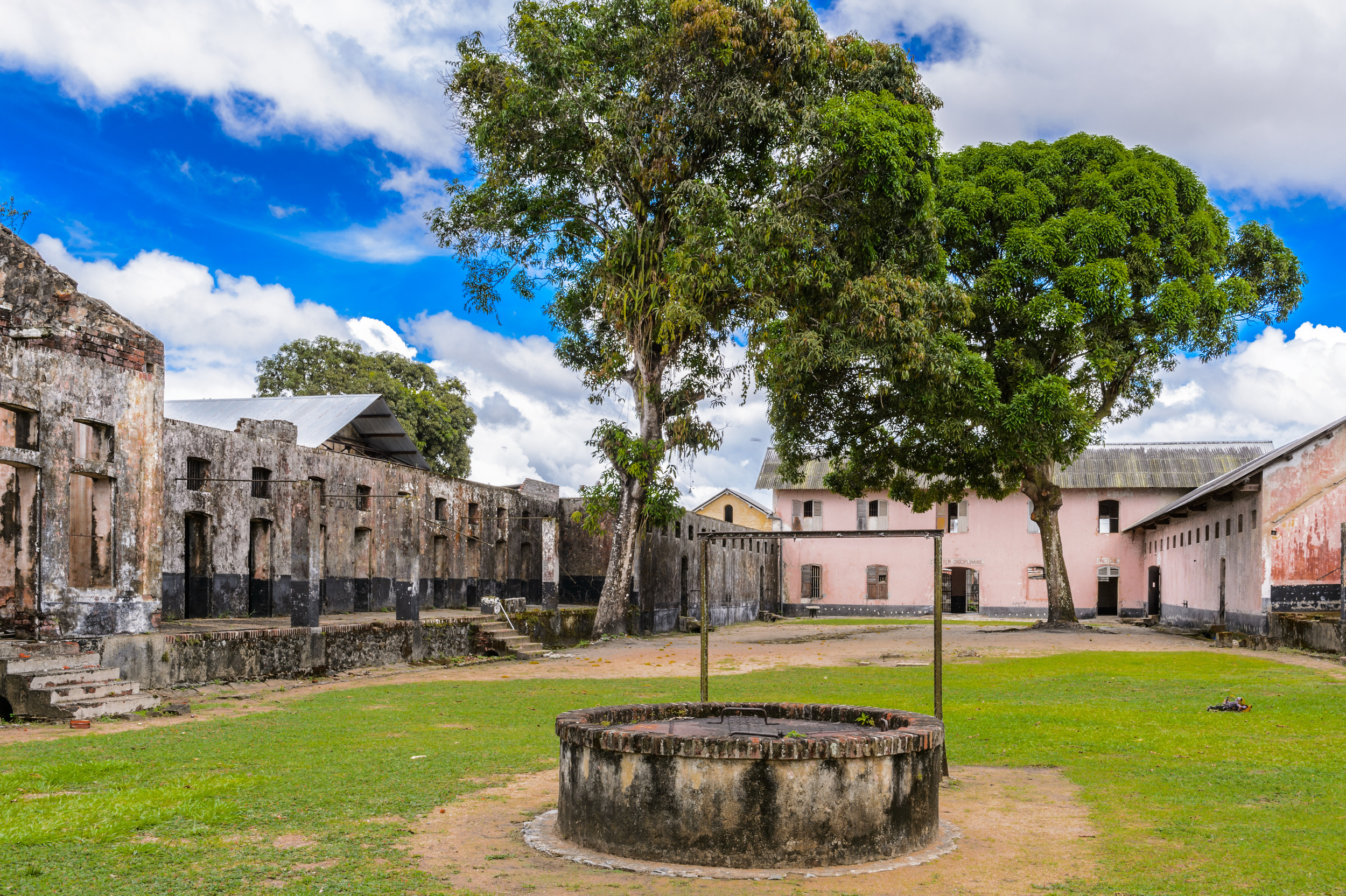
French Guiana
This small section of the South American continent, located between far northeastern Brazil and Suriname and Guyana, is a former colony that housed a penal colony of France. Today, it is a French Overseas Department. Thus, French is the official language, but Creole is the language of use by many residents.
You may also like: 22 healthy snacks you can make on gameday
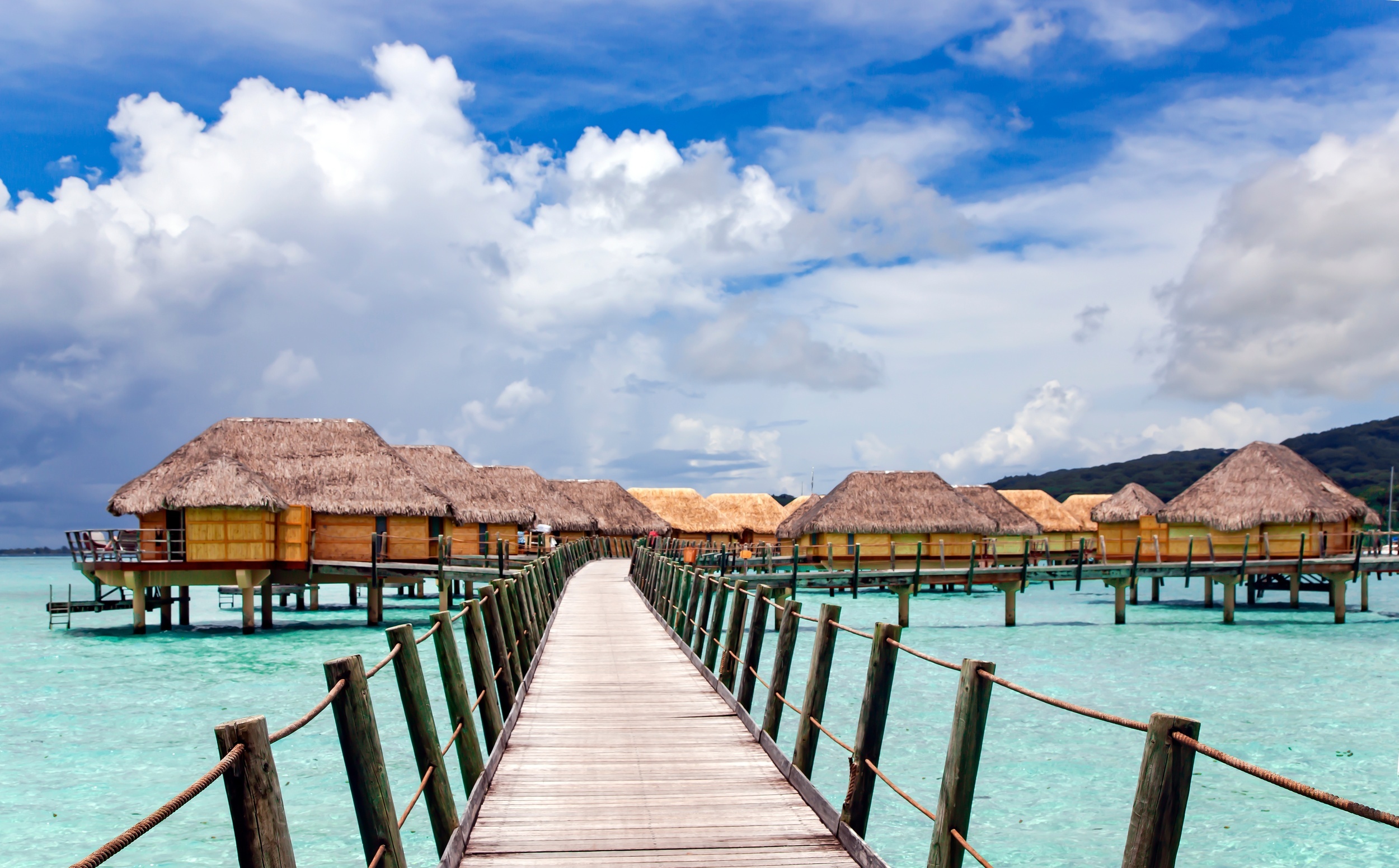
French Polynesia
Colonized by the French, the islands received the name “French Polynesia” after being designated a French Overseas Territory in the '50s. Then, in 1977, the country received autonomy and is now considered an overseas country of the French Republic, with French as the official language.
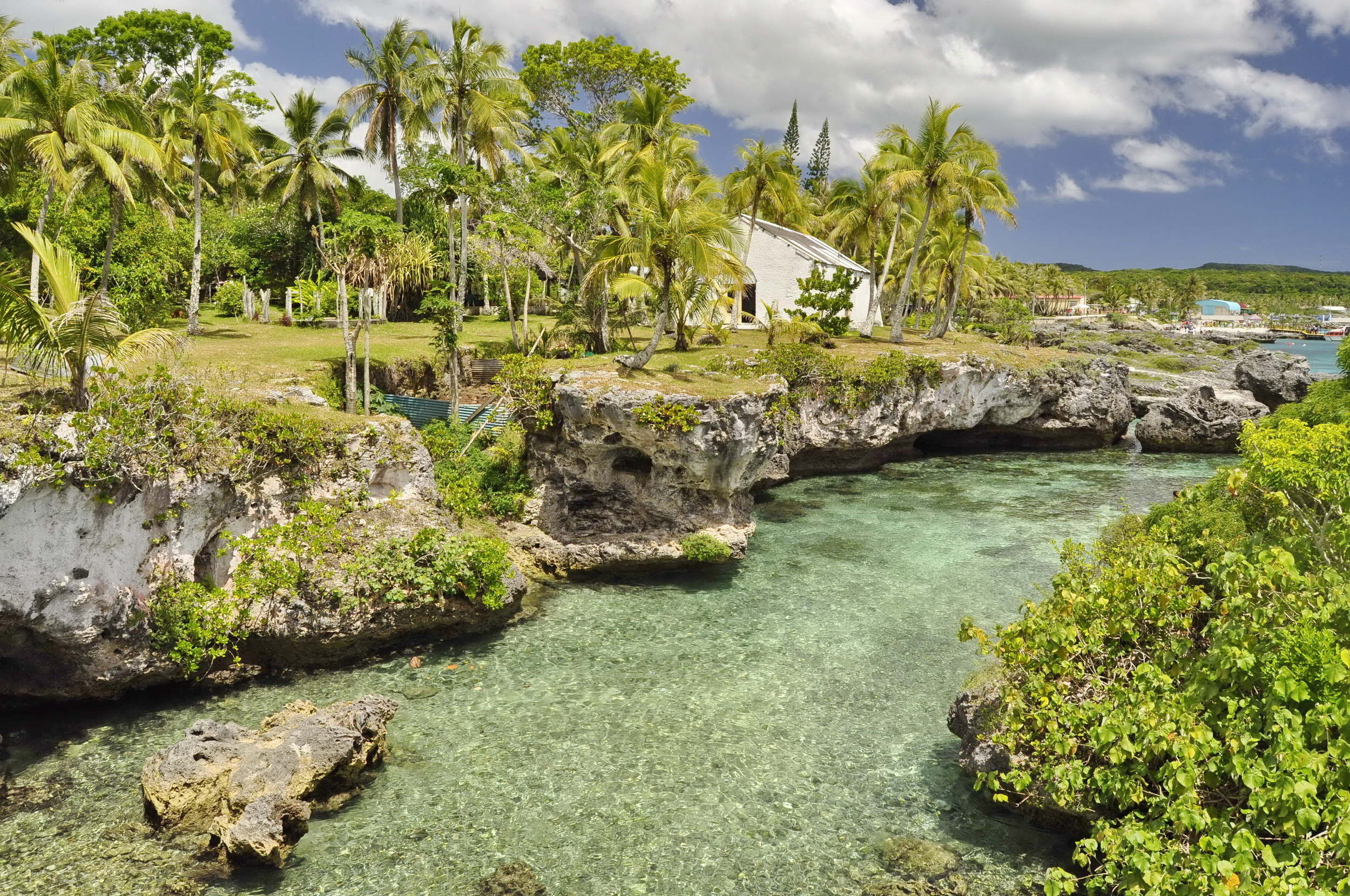
New Caledonia
The British initially colonized these islands in the South Pacific before the French took over in 1853. Recent years have brought referendums for independence, but a slim majority of the population has voted in favor of remaining part of France. French remains the official language of the territory.
You may also like: 20 essential tips for your best hair ever
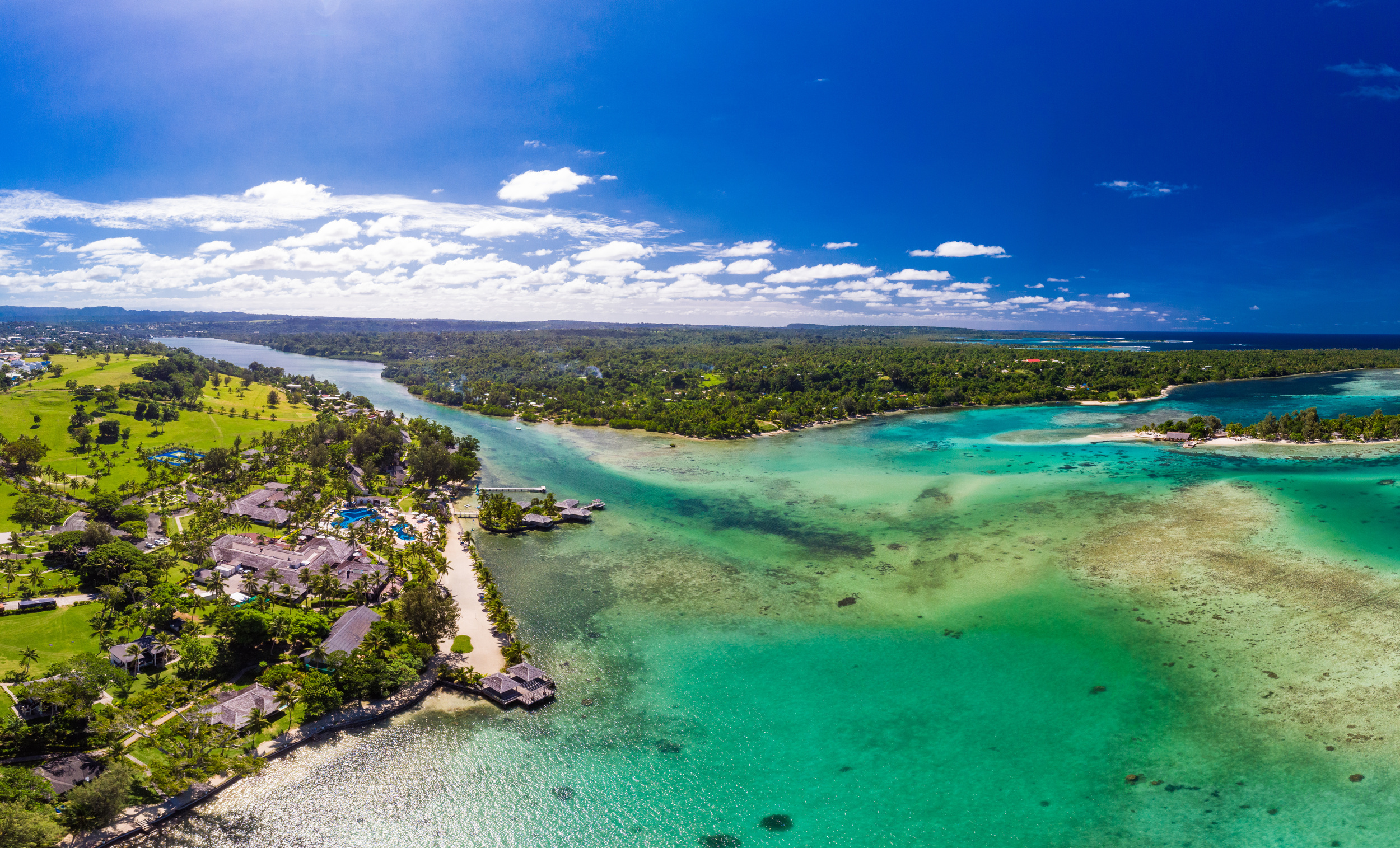
This Pacific country is very multilingual, with French, English, and Bislama all considered official languages. However, it doesn’t stop there, as over 100 languages are spoken on the island. After centuries of colonization, independence was finally declared in 1980.
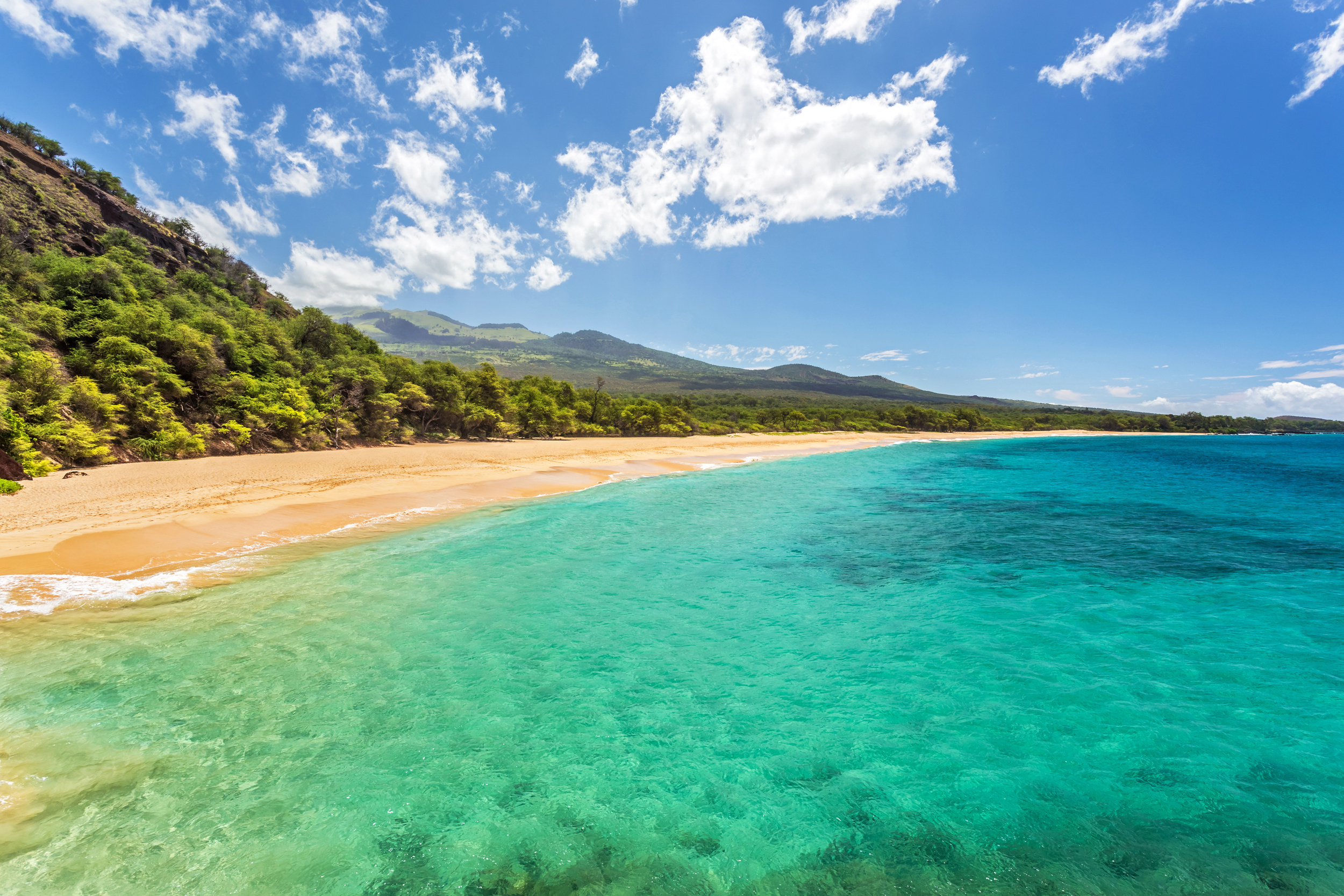
Wallis & Futuna
Made up of the Wallis, Futuna, and Alofi islands, all three were French protectorates and colonies until 1961. Then, the islands became a French Overseas Territory until 2003, when they received status as an Overseas Collectivity. French has been the official language throughout all the status changes.
Did you enjoy this slideshow? Follow us on MSN to see more of our exclusive lifestyle content.
More for You
18 Most Common Reasons Women Leave Their Marriages
Luke Grimes Supports Kevin Costner's Decision On ‘Yellowstone'
The most dangerous state to drive in in the US, according to data—plus, see where your state ranks
OAN Retracts and Apologizes for False Story About Key Trump Trial Witness
A woman said her tattoos got her rejected for a job, but experts say personality is far more important
Barack Obama shares his No. 1 piece of advice for his own daughters: Don't let your hunger for success ruin your happiness
17 Phrases Older People Use That No One Else Gets
Spacecraft spots "spiders" scattered across surface of Mars
Netflix top 10 movies — here’s the 3 worth watching right now
Obama Defends New York Times, MSNBC Partisan News: 'They're Not Going to Just Make Stuff Up'
John Jacob Astor IV was one of the richest men in the world when he died on the Titanic. Here's a look at his life.
If you and your partner use any of these 5 phrases regularly, your relationship is stronger than most
15 “As Seen On TV” Products That Are Well Worth The Money
Ghosts of the USA: The Most Haunted Places in America
Putin's got egg on his face after showing off captured British armoured cars
This is the ideal sleep temperature for older adults, new study finds
One of Earth's nine 'eternal flames' discovered inside a waterfall
Unsellable Houses' Lyndsay Lamb Says Buyers Are Moving Away From This Color Trend
What Do All the Heart Emojis Mean? A Guide To Using the Symbols of Love
Senior Hit With Lifetime Medicare Penalty Forced to Go Back to Work

IMAGES
VIDEO
COMMENTS
Days 4-6: Practice Ordering A Meal! Ratatouille, bœuf bourguignon, crêpes, quiche … the list goes on! France is a veritable wonderland of food and flavor, and you'll most likely be spending a fair amount of time in restaurants and cafés. That being said, you should plan to brush up on some useful words and phrases for ordering a meal.
Merci beaucoup - "Thanks a lot". And of course, don't forget to say thank you! The French word for "thank you" is merci. Or you can make it stronger by saying merci beaucoup - "thanks very much". Use merci in all the same situations you'd say "thank you" in English.
1. Duolingo - The Easiest Way to Learn French for Travel. I've had an on-again, off-again relationship with Duolingo for many years. However, to prepare for my most recent trip to Paris, I decided to re-activate the app and commit to using it at least once a day. To make this easier on myself I purchased Duolingo Plus, which offers an ad ...
Travelers to France and other countries where French is spoken will want to learn a few basic words in the local language. It will help you on your trip (le voyage) as you make your way around and speak to people. In this French vocabulary lesson, you will learn how to ask for directions, navigate your transportation options and rent a car ...
Discover the key to unlocking a more immersive travel experience in France with our complete guide, featuring over 30 basic French phrases for travel. Whether it's greeting locals, navigating your way through picturesque streets, ordering culinary delights, or shopping for unique souvenirs. Perfect for first-time visitors or seasoned travelers ...
This is your ultimate compilation to learn how to travel in France! And if you want to study more, click here https://goo.gl/MexUPk and get the best resour...
The process of learning French is made easier when you have the right learning tools in your tool kit. The more learning resources you use, the faster you will progress. Remember to focus on all four language skills: reading, writing, listening and speaking. If you want to master the French language, all of these skills are essential.
Start a French learning journey for seamless travel adventures, breaking language barriers and connecting with locals in Brittany or on the romantic streets of Paris. Equip yourself to explore beyond tourist spots and delve into the heart of French culture. ... Learn to speak French. If you're already fluent in English, you're at an advantage ...
What students say. "Real French for Travelers" online training is excellent! This training provided the right topics at the right pace for me to learn French." -Cris L. "I've tried a few other resources, but this one was the most comprehensive and easy to follow for a beginner. It's well laid out, the workbook and exercises are ...
Learn French with bite-size lessons based on science. ... Learn languages by playing a game. It's 100% free, fun, and scientifically proven to work. With our free mobile app and web, everyone can Duolingo. Learn French with bite-size lessons based on science.
ap-leh lah po-lees. Fire! Au Feu! au fur. **There are a few places that use unique words for the numbers 70 ( septante) and 90 ( nonante ), such as Belgium and Switzerland. With the numbers 80 to 89, combine the number 4, the number 20, and the ones. For example, in French 80 is four 20s, 81 is four 20s plus 1, and so forth.
Watch on. Teacher and tour guide Trish Feaster has designed this French language class just for travelers — with exactly what you need to know for practical, smooth travels in France. You'll learn how to pronounce French words, master some key phrases every traveler should know, and better understand how France's language is tied to its culture.
Teacher and tour guide Trish Feaster has designed this French language class just for travelers — with exactly what you need to know for practical, smooth tr...
Traveling to France or a French-speaking country? Learn these Top 10 French phrases for travellers so you can greet people, order food and travel with confid...
Bonjour - Hello. The phrase bonjour is the most common and widely used greeting in French. It sets a positive tone for your conversation. You can use this greeting all day. Bonsoir - Good evening. Bonne soirée - Have a good evening. Bonsoir is used in the evenings, from around 6 pm onward as a greeting.
Bonjour monsieur/madame (hello sir/madam), or. Excusez-moi monsieur / madame (excuse me sir/madam). Likewise, when entering a shop, it is always nice to greet the shopkeeper by saying hello or good morning. Learn to Greet in French. This is perhaps the first important thing to learn.
Learn languages by playing a game. It's 100% free, fun, and scientifically proven to work. Duolingo is the world's most popular way to learn a language. It's 100% free, fun and science-based. Practice online on duolingo.com or on the apps! Learn languages by playing a game. It's 100% free, fun, and scientifically proven to work. ...
Learn how to communicate your contact details with ease. Be able to ask vital questions during travel. Speak the correct polite forms of French. Learn how to change a reservation, and so much more. Each Conversational French for Travel lesson is personalized. Your teacher will help you get comfortable in communicating with the French locals in ...
It's a pretty lazy, straightforward way to go. Trouble comes when you want to learn French for TRAVEL, and not French in general. Duolingo and co don't have a specific 'travel' section. Giving time though, it would work. Just, you're going to need to super selective within the app itself. Again, this is NOT time efficient.
Turn your smartphone into a French speaker. Switch the language settings on your phone to French. You can do the same with your computer. Look for French speakers in your city. Most cities around the world, big or small, will have a community of French speakers. Chances are, there's one near you.
Use this phrase to explain to your new friends where you're staying, as well as how long you're staying. Je vous présente… (lit. "I present you…") This is another way of saying "This is [my]…" when you want to introduce two people to each other. Enchanté/Enchantée. (Pleased to meet you.)
Learn 150+ Basic French Travel Phrases To Master For Your Next Trip To France. Elijah Logan. April 11, 2023. French Vocabulary / Popular Reviews. If you want to explore France thoroughly, especially the city of love, you must know the basic French travel phrases. Although English is a universal language, it is not well-known in most French ...
5. Madagascar. Best areas to learn French: The capital city of Antananarivo, Diego in the north, Toliara on the southwest coast and the popular tourist destination island of Nosy Be. Just off the southeastern coast of South Africa, the island country of Madagascar is sometimes called the "8th continent.".
Speaking another language is always helpful, especially if you love to travel. And French, commonly thought of as one of the most beautiful in the world, is also more useful than you might realize.